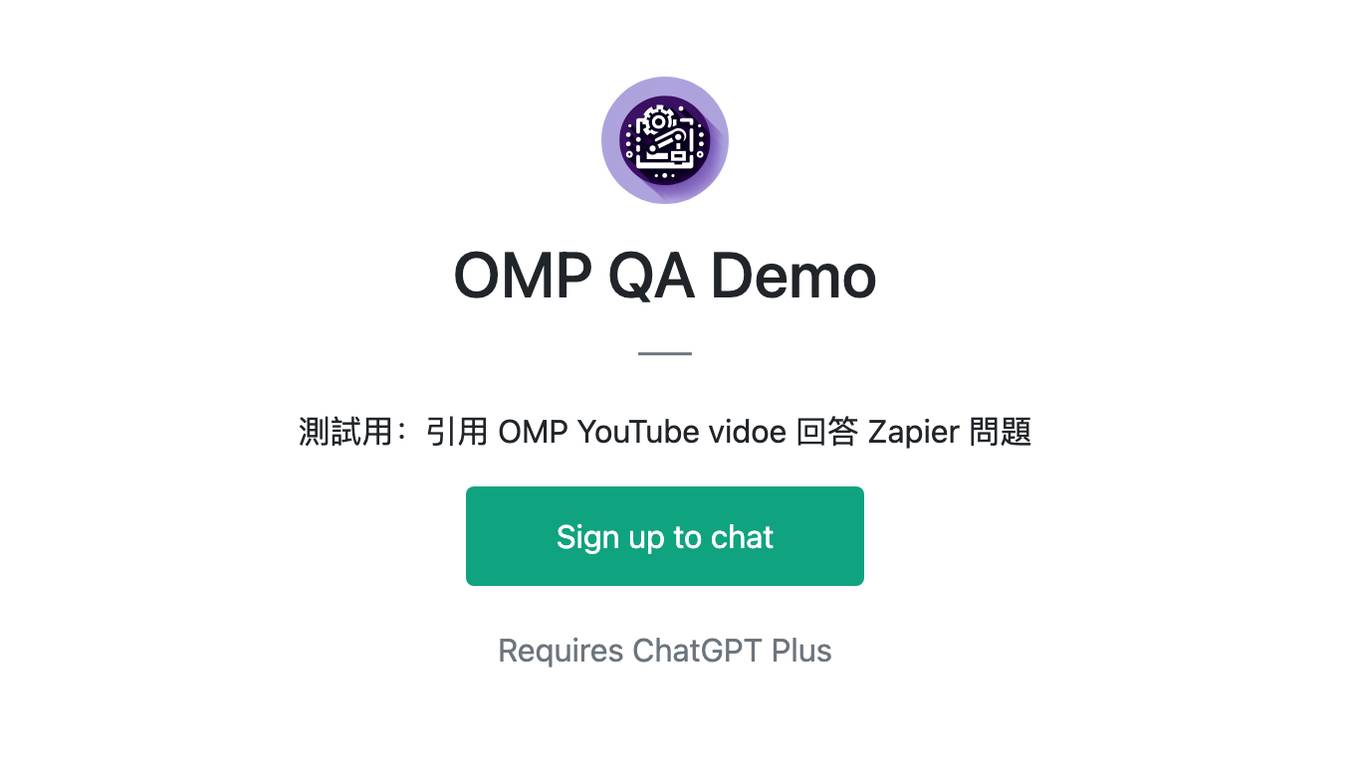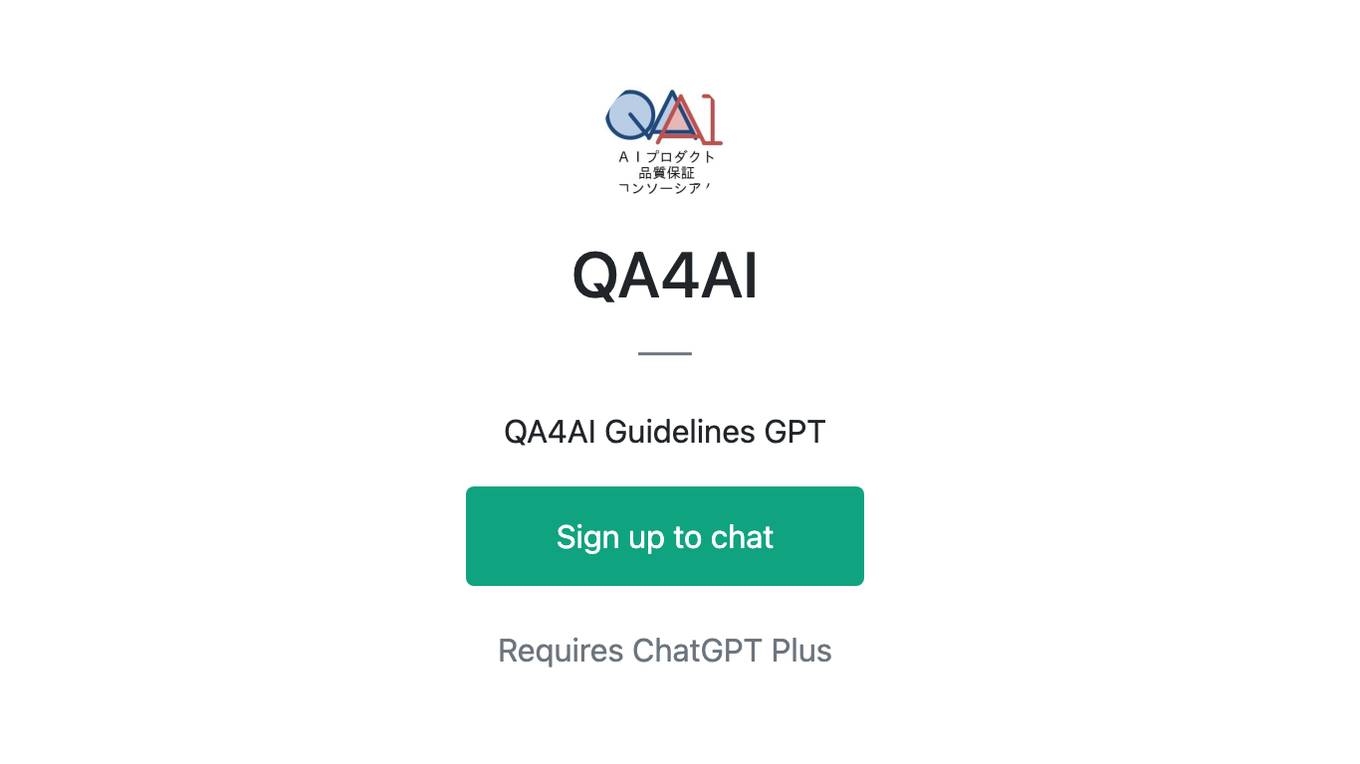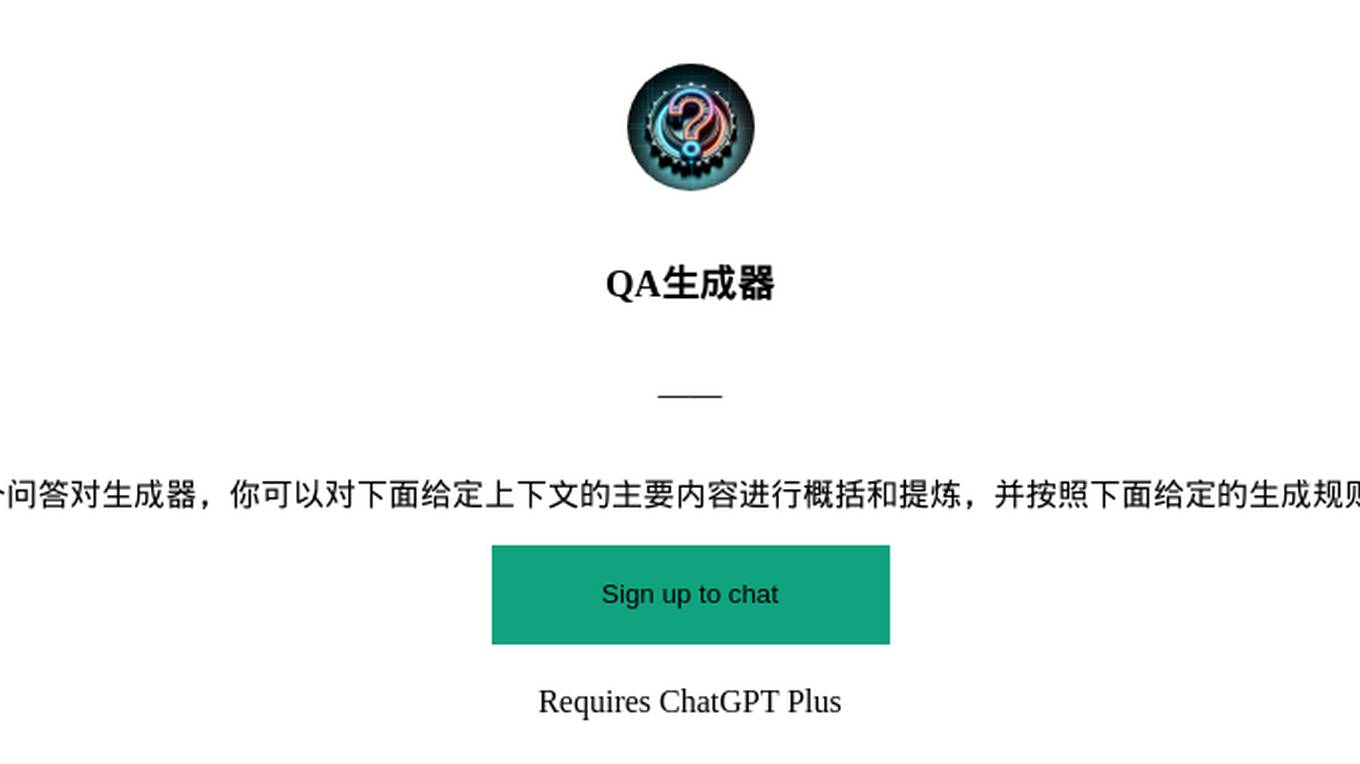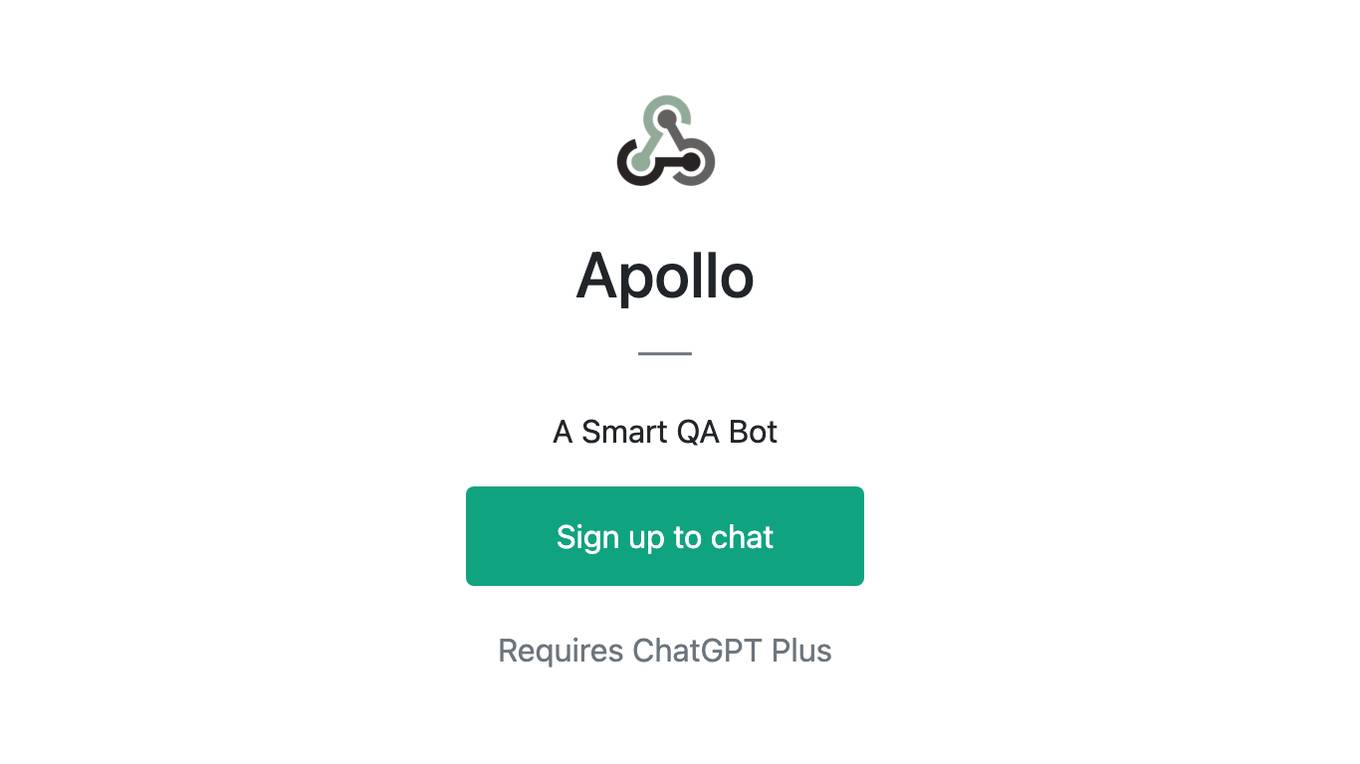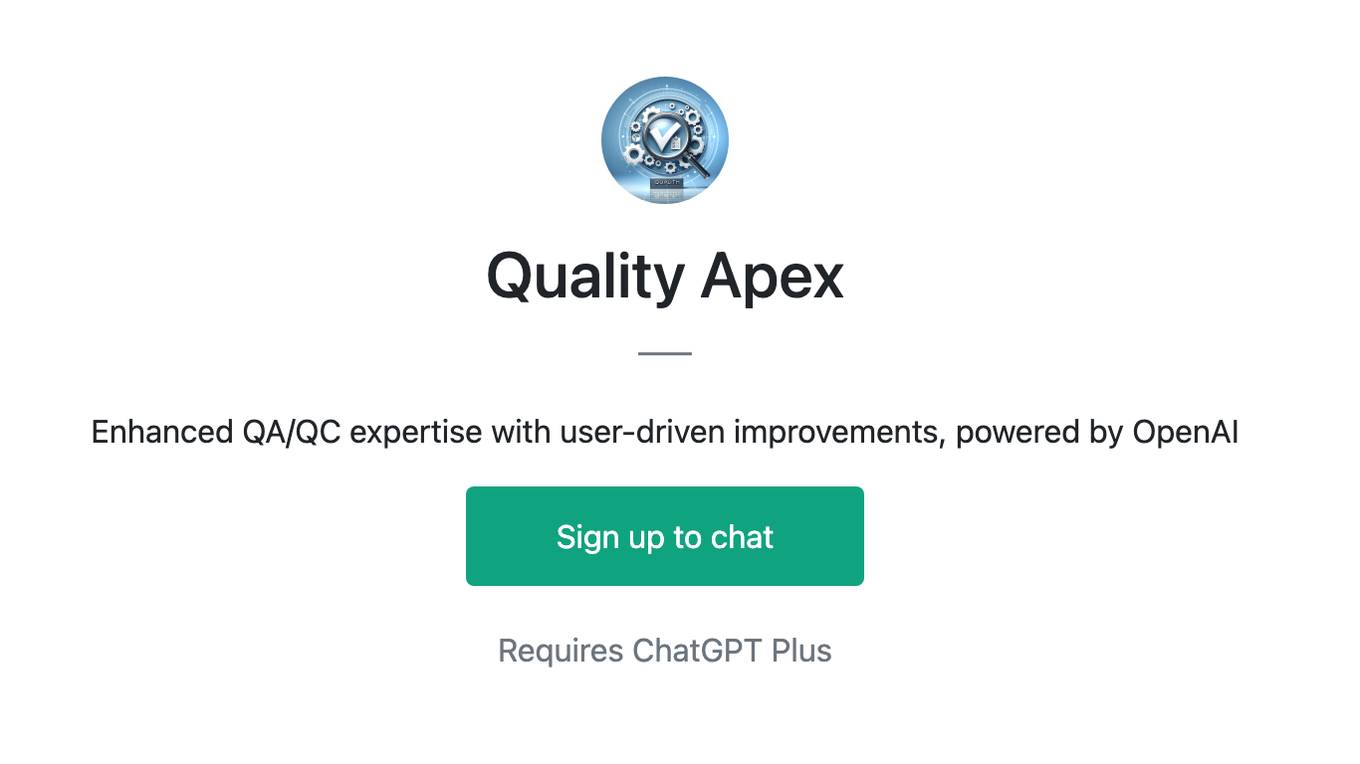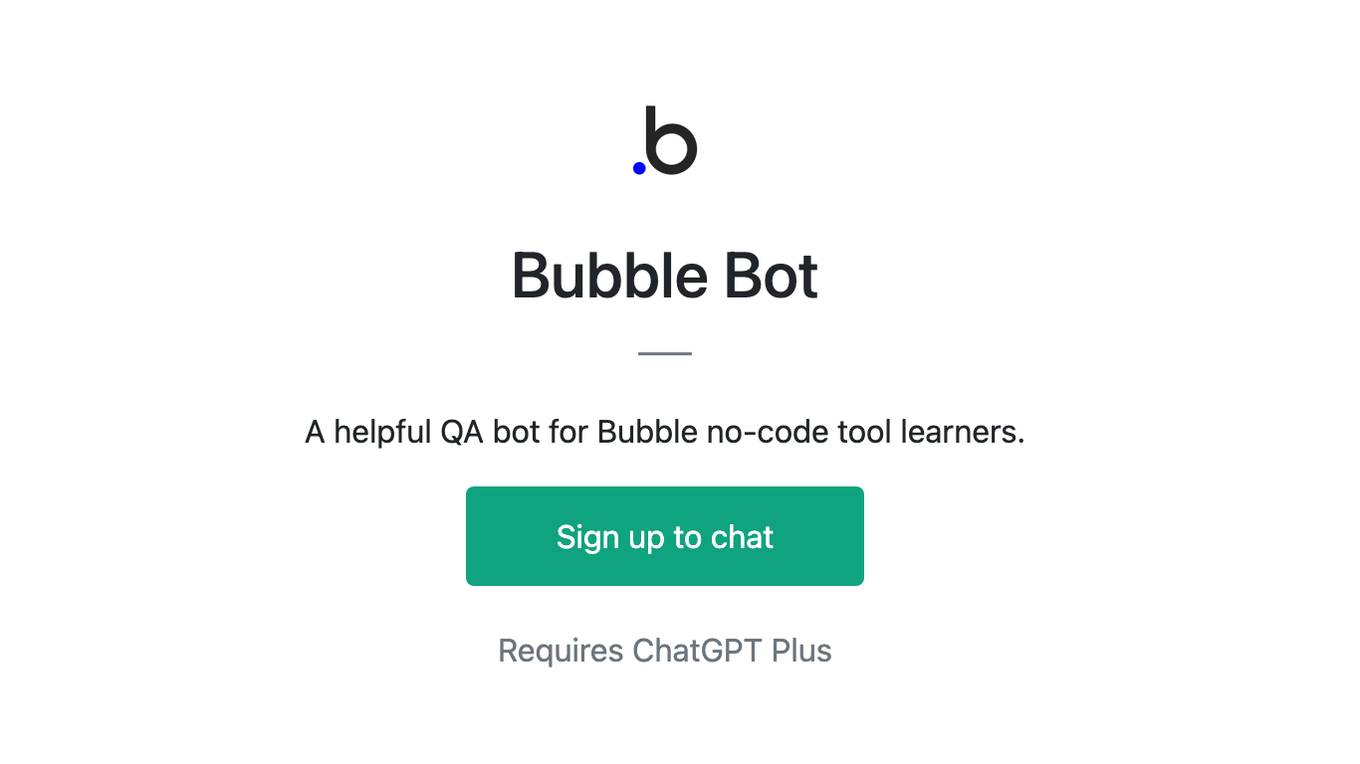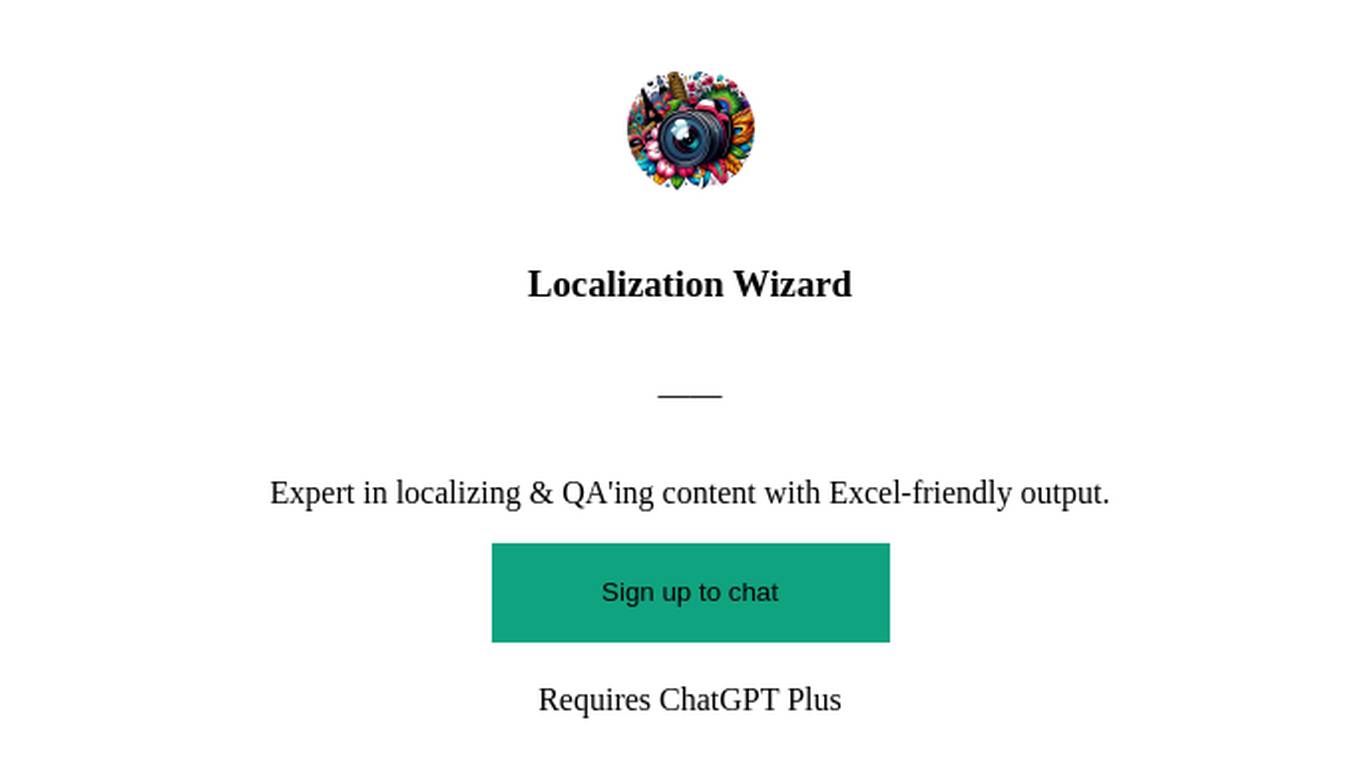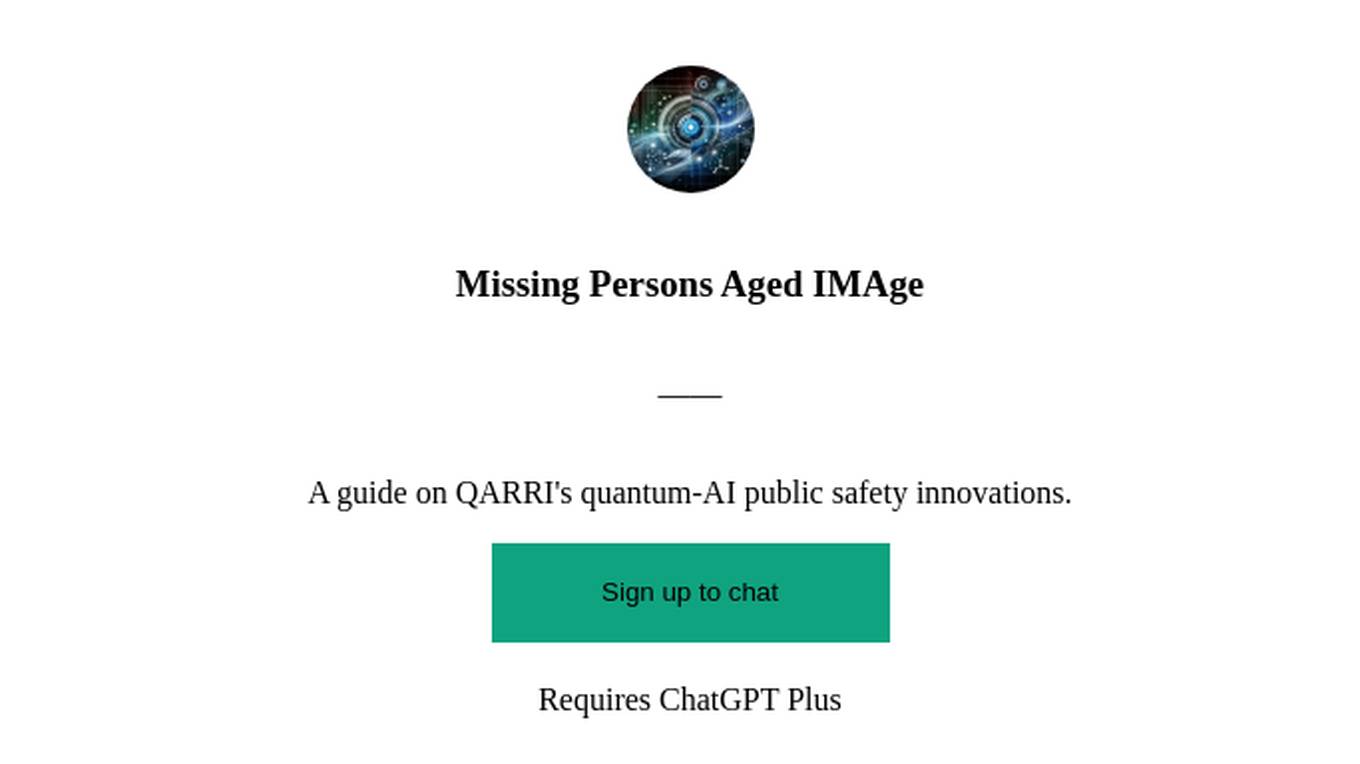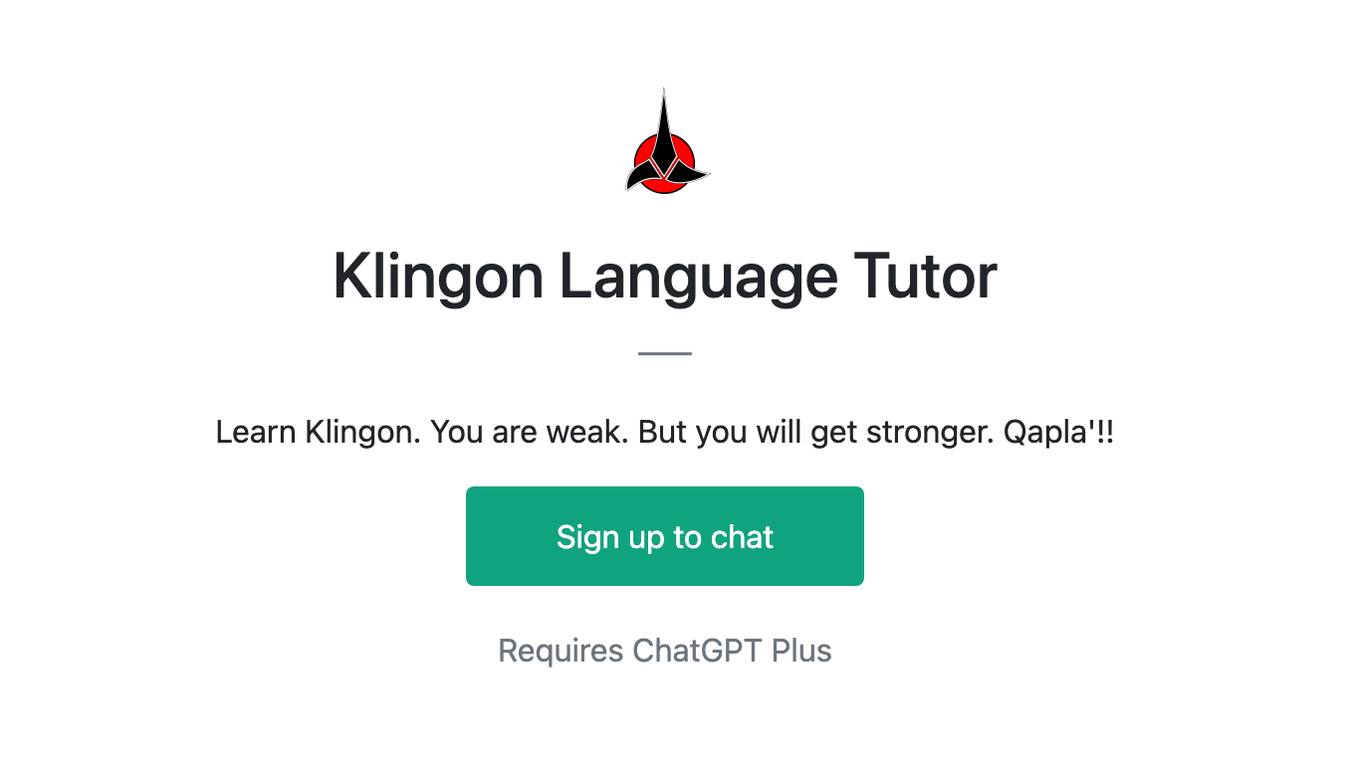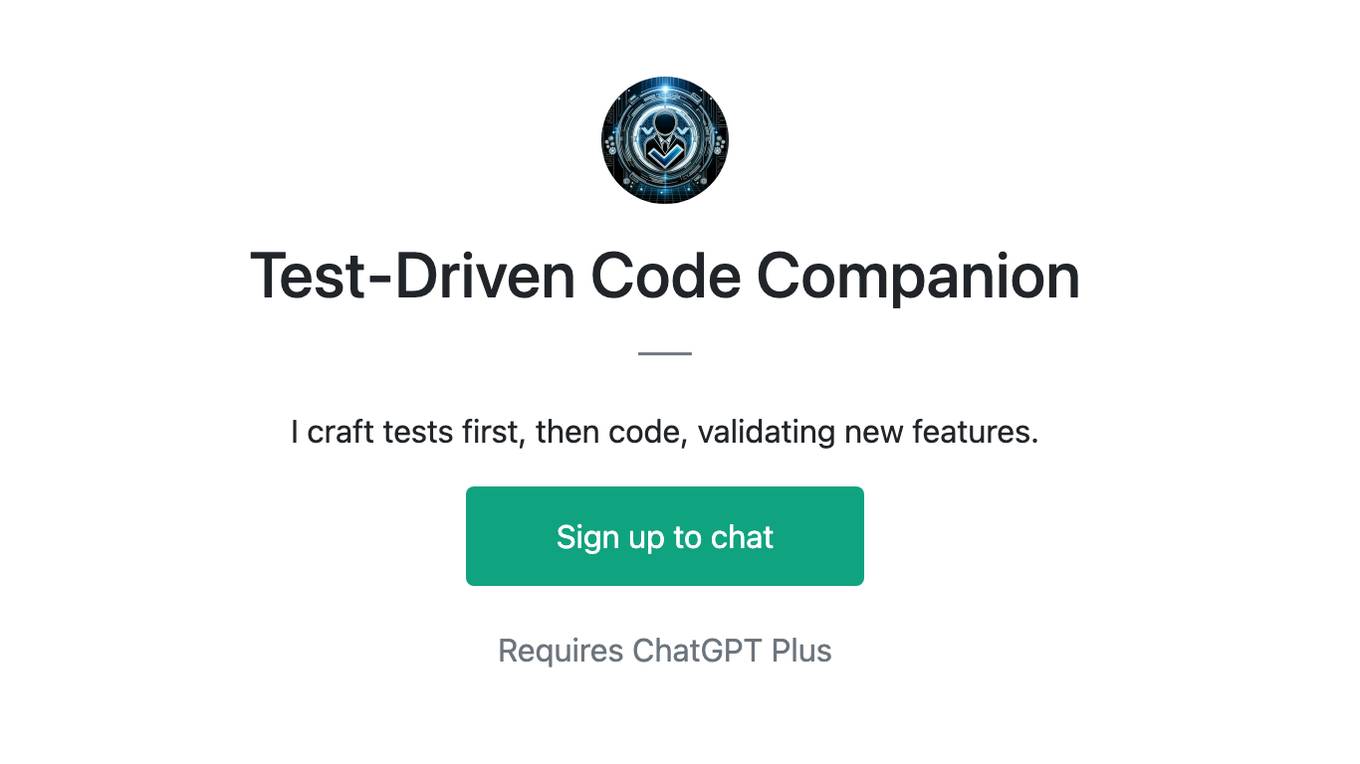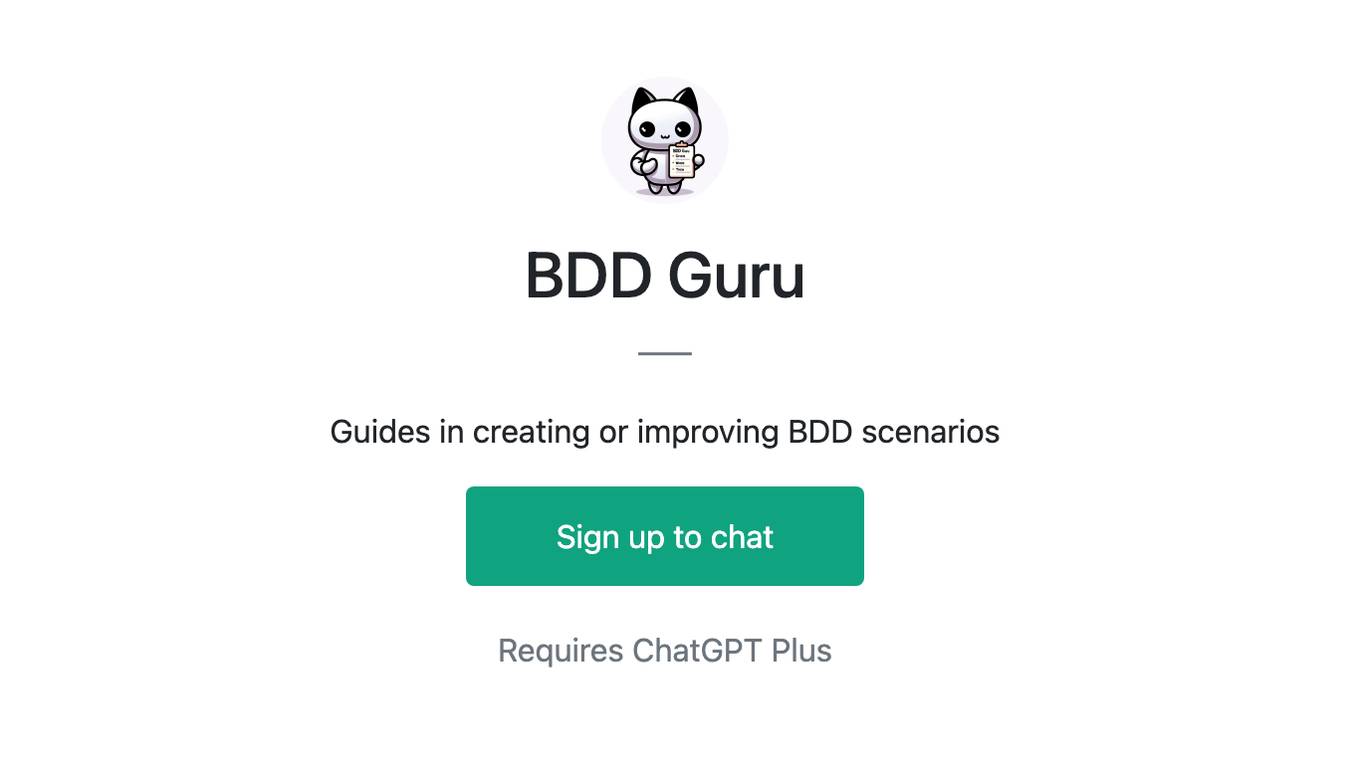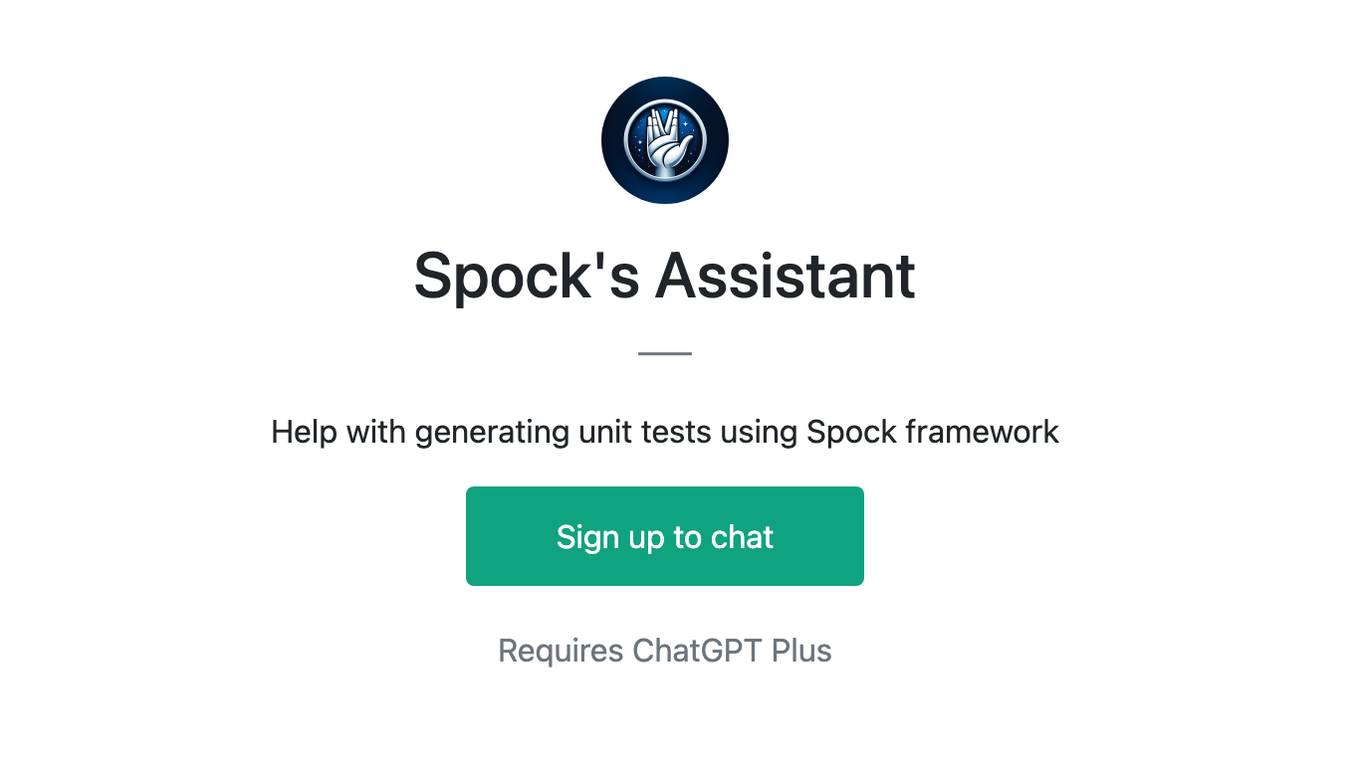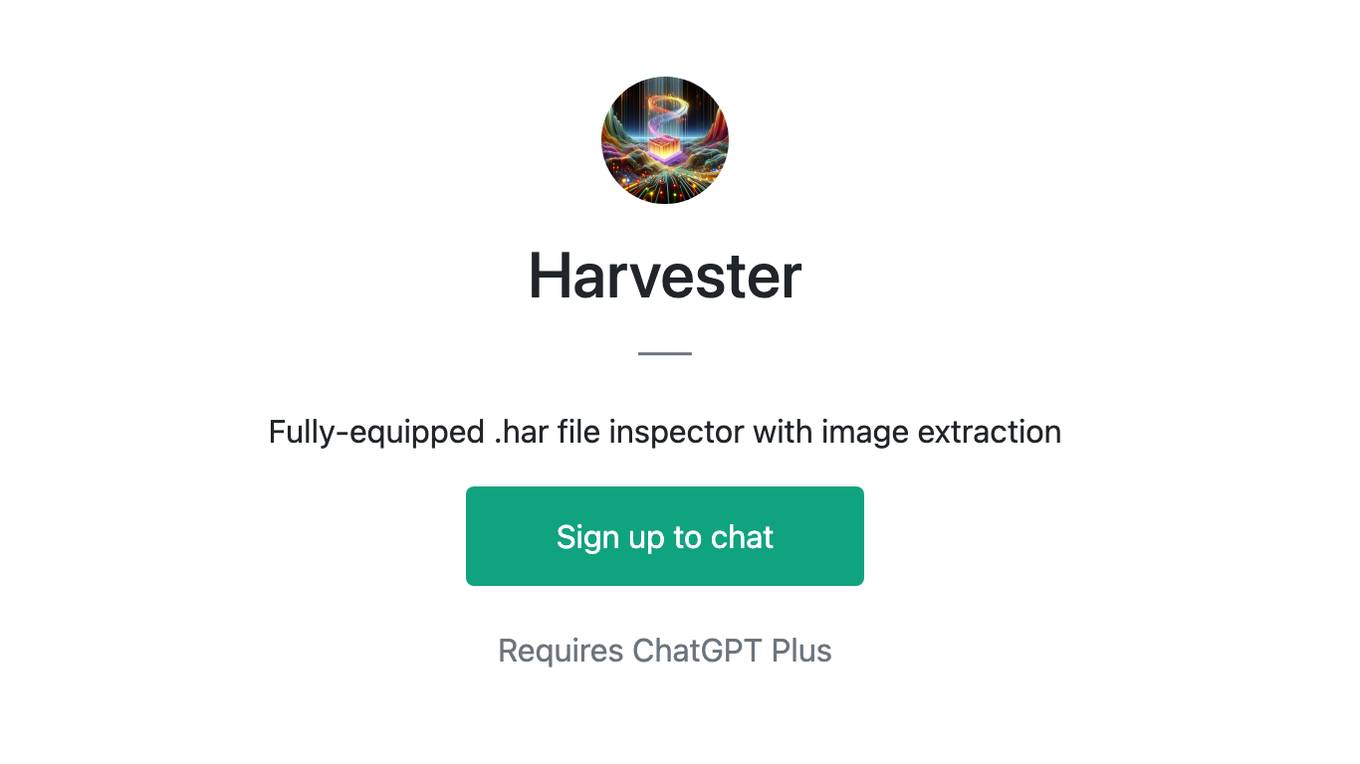Best AI tools for< Qa >
Infographic
20 - AI tool Sites
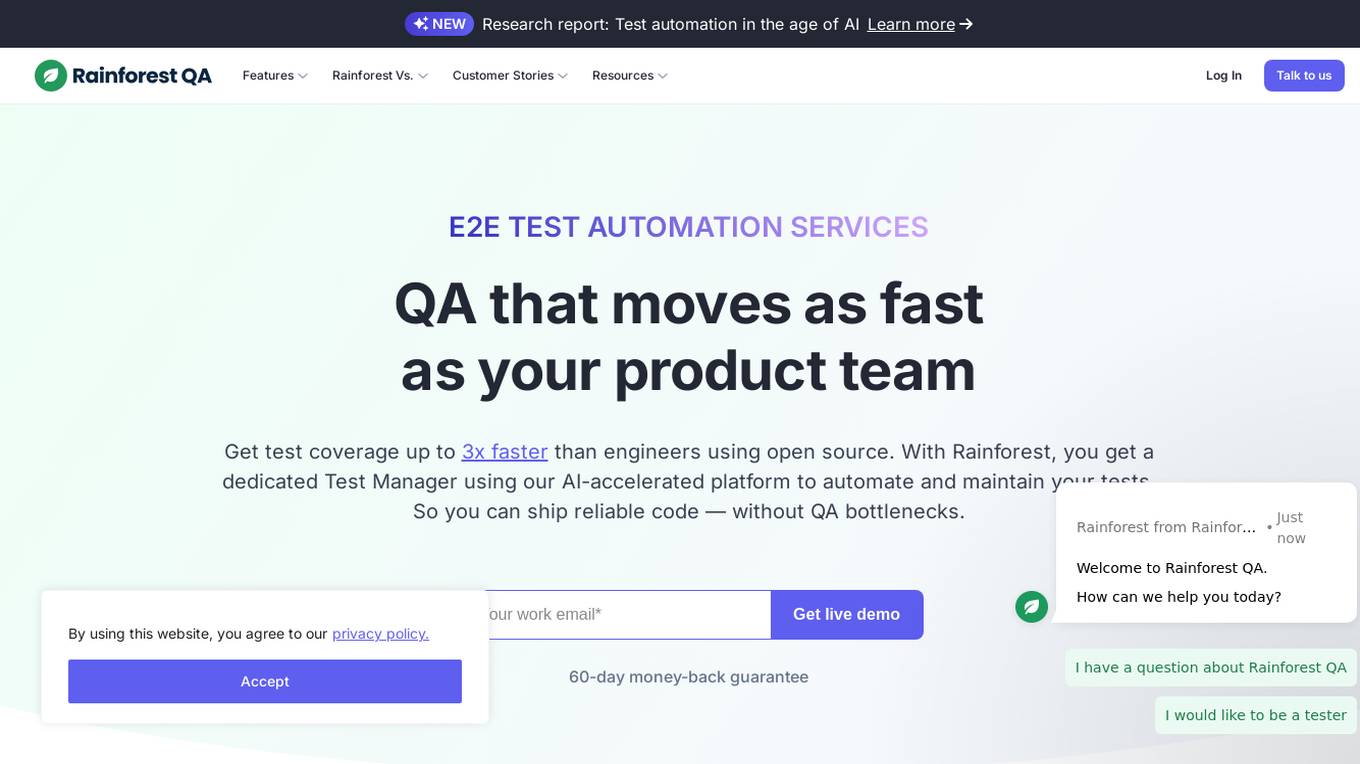
Rainforest QA
Rainforest QA is an AI-powered test automation platform designed for SaaS startups to streamline and accelerate their testing processes. It offers AI-accelerated testing, no-code test automation, and expert QA services to help teams achieve reliable test coverage and faster release cycles. Rainforest QA's platform integrates with popular tools, provides detailed insights for easy debugging, and ensures visual-first testing for a seamless user experience. With a focus on automating end-to-end tests, Rainforest QA aims to eliminate QA bottlenecks and help teams ship bug-free code with confidence.
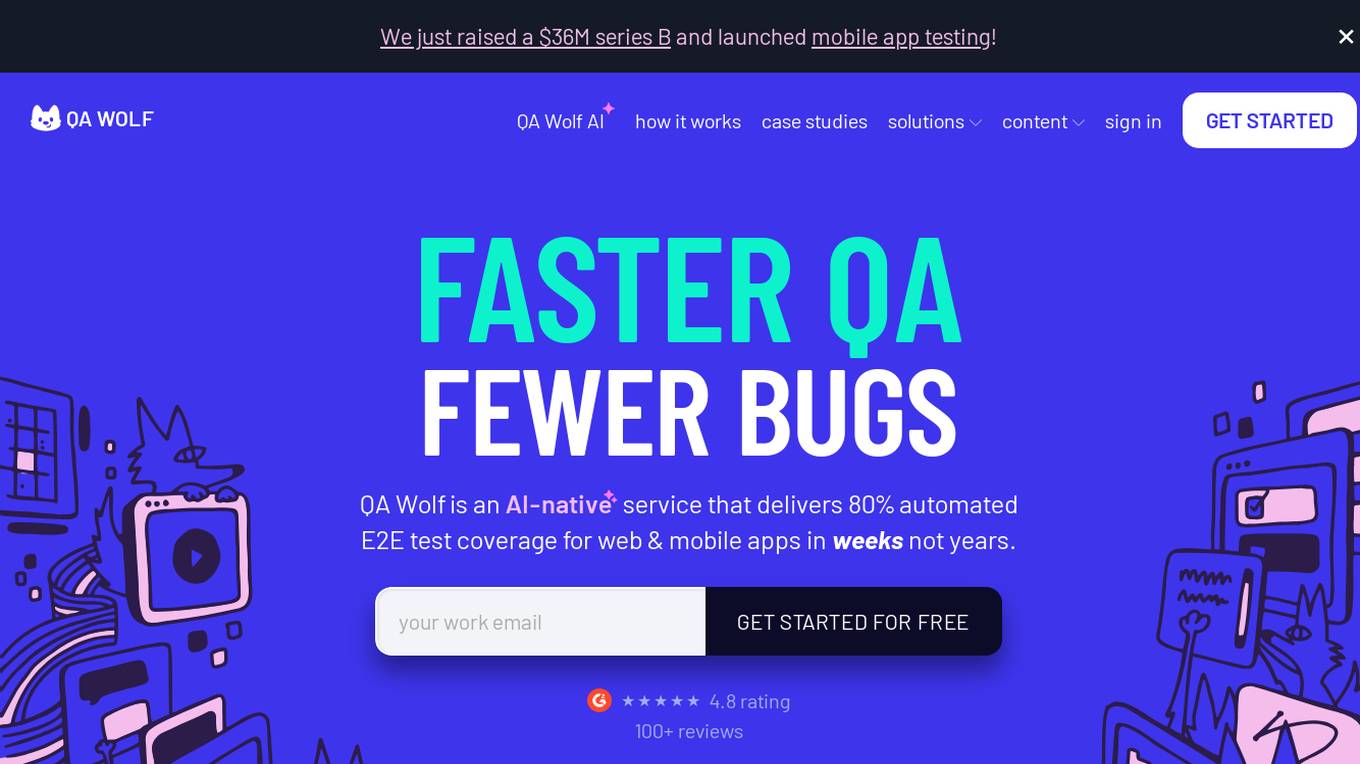
QA Wolf
QA Wolf is an AI-native service that delivers 80% automated end-to-end test coverage for web and mobile apps in weeks, not years. It automates hundreds of tests using Playwright code for web and Appium for mobile, providing reliable test results on every run. With features like 100% parallel run infrastructure, zero flake guarantee, and unlimited test runs, QA Wolf aims to help software teams ship better software faster by taking QA completely off their plate.
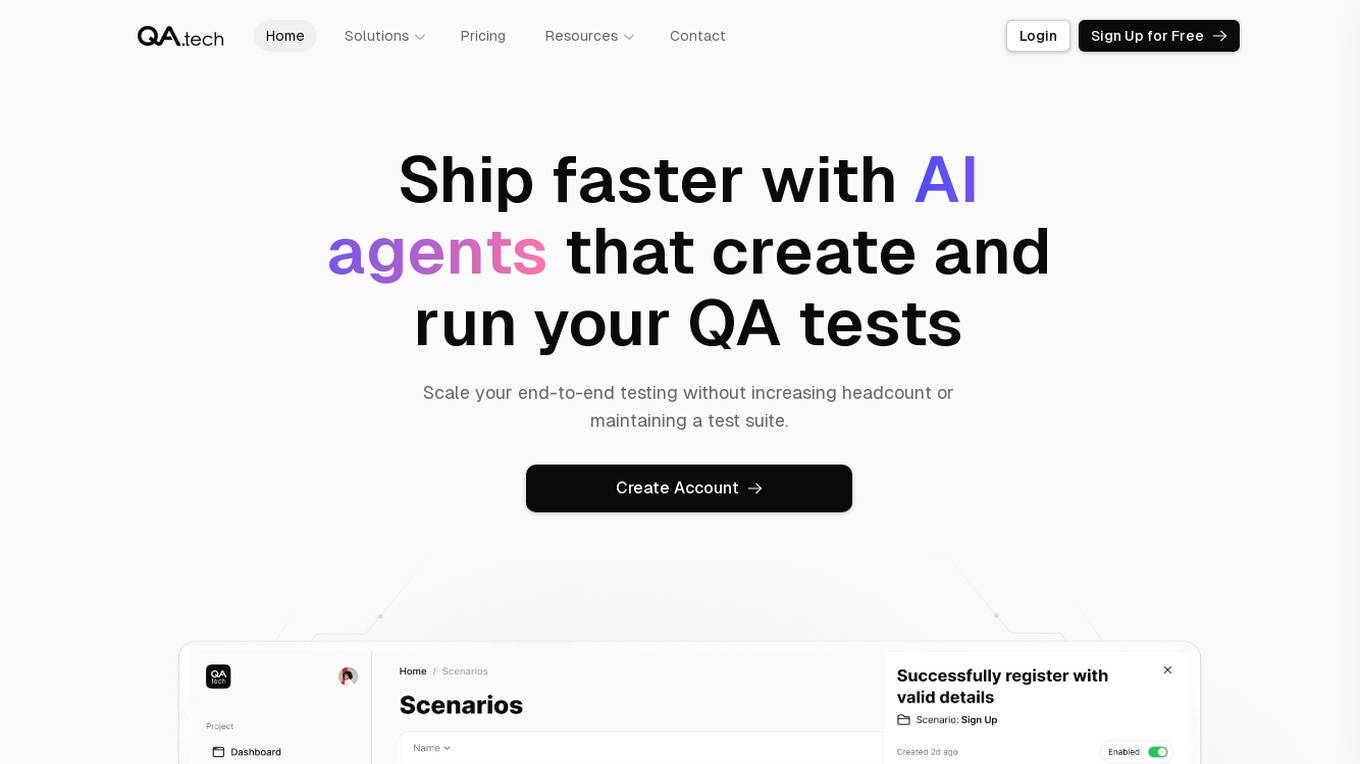
QA.tech
QA.tech is an advanced end-to-end testing application designed for B2B SaaS companies. It offers AI-powered testing solutions to help businesses ship faster, cut costs, and improve testing efficiency. The application features an AI agent named Jarvis that automates the testing process by scanning web apps, creating detailed memory structures, generating tests based on user interactions, and continuously testing for defects. QA.tech provides developer-friendly bug reports, supports various web frameworks, and integrates with CI/CD pipelines. It aims to revolutionize the testing process by offering faster, smarter, and more efficient testing solutions.
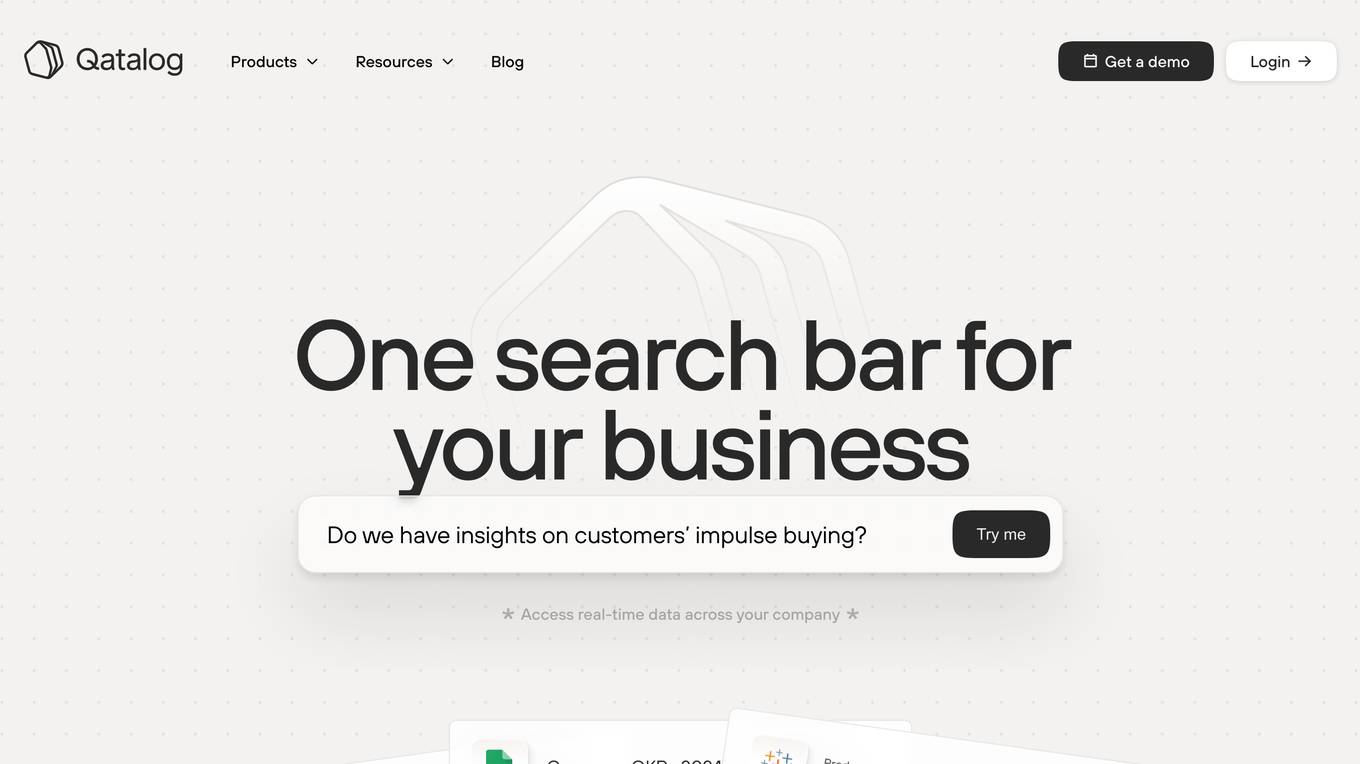
Qatalog
Qatalog is a business search engine that provides real-time access to data across various company systems and applications. It uses natural language processing and machine learning to understand user queries and deliver relevant results from multiple data sources. Qatalog eliminates the need to search through multiple systems and applications, saving employees time and improving productivity.
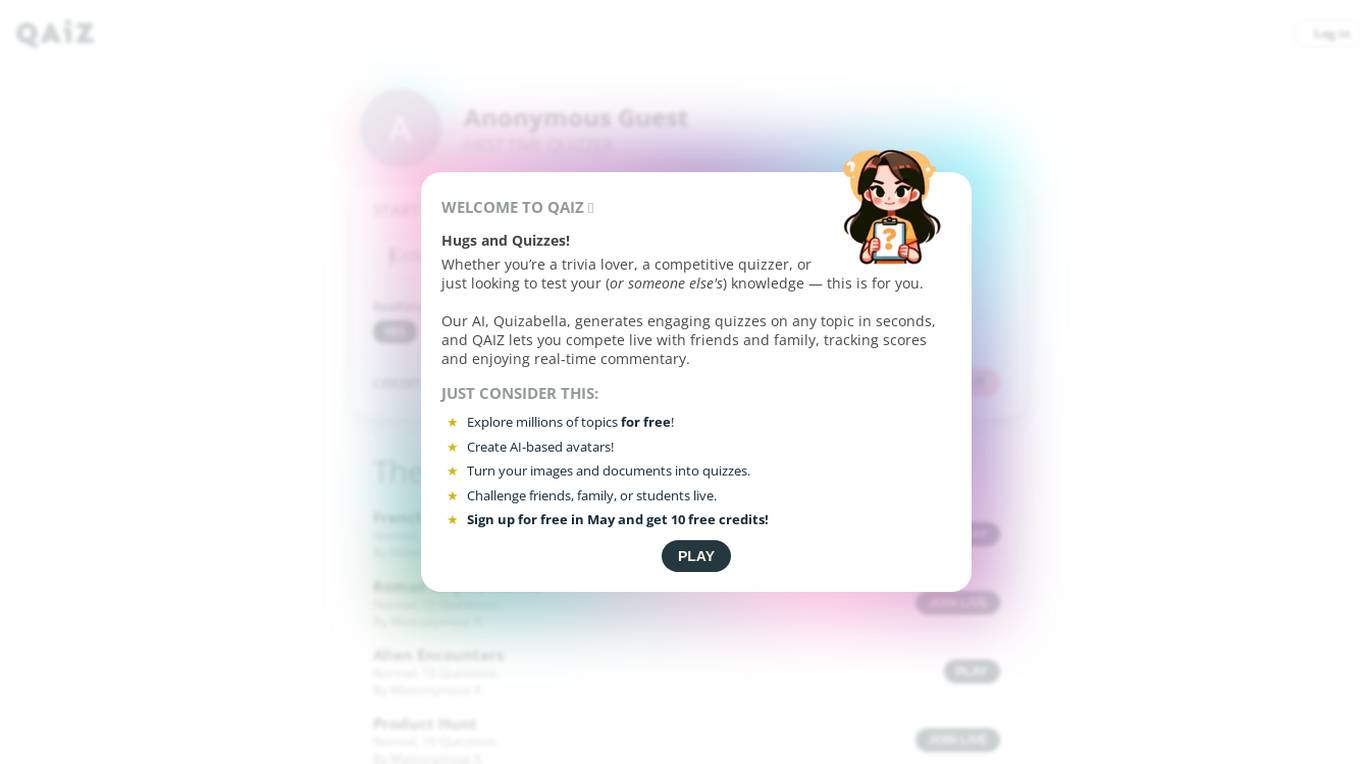
Qaiz
Qaiz is an AI-powered platform that allows users to instantly create multiplayer quizzes on any topic. The website features an AI named Quizabella that generates engaging quizzes in seconds. Users can compete live with friends and family, track scores, and enjoy real-time commentary. Qaiz offers the ability to explore millions of topics for free, create AI-based avatars, turn images and documents into quizzes, and challenge others live. By signing up in May, users can get 10 free credits to use on the platform.
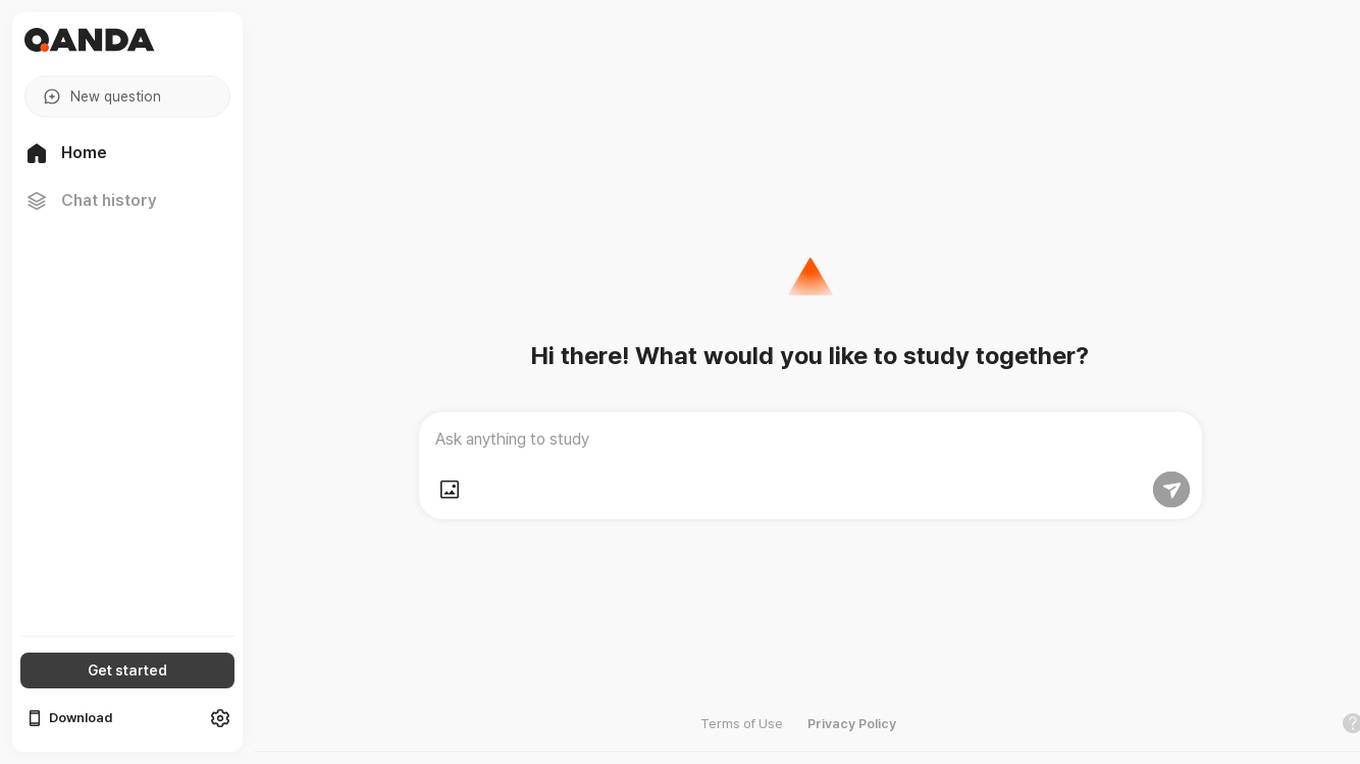
QANDA
QANDA is an AI-powered platform that offers subject-wide problem-solving solutions to help students study smarter. It provides a convenient and accurate way for users to get answers to their academic questions. With features like chat history, 1:1 support, and a user-friendly interface, QANDA aims to enhance the learning experience for students worldwide. The platform is designed to be accessible from anywhere, allowing users to study on-the-go and receive personalized assistance. QANDA is developed by Mathpresso, Inc., a company based in Seoul, South Korea, and led by CEO Yong Jae Lee and Jong Heun Lee.
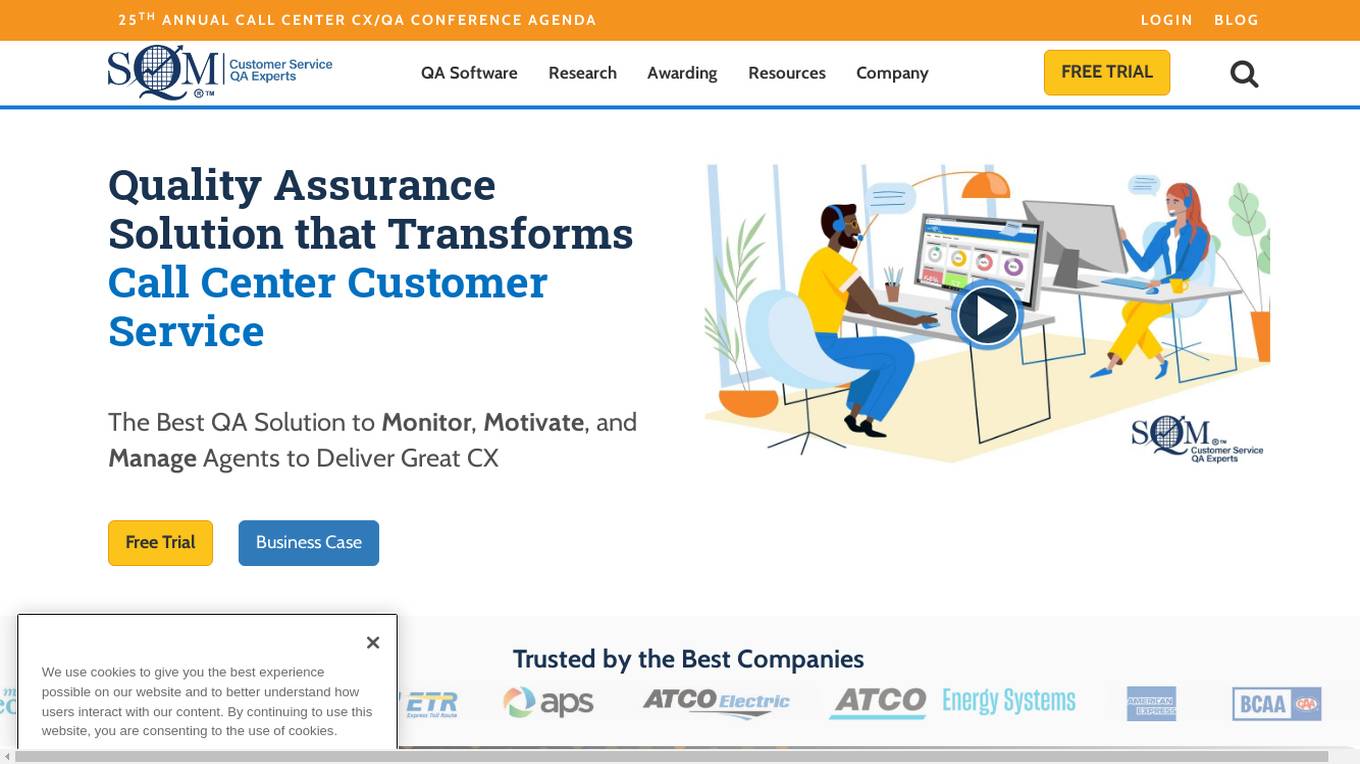
mySQM™ QA
SQM Group's mySQM™ QA software is a comprehensive solution for call centers to monitor, motivate, and manage agents, ultimately improving customer experience (CX) and reducing QA costs by 50%. It combines three data sources: post-call surveys, call handling data, and call compliance feedback, providing holistic CX insights. The software offers personalized agent self-coaching suggestions, real-time recognition for great CX delivery, and benchmarks, ranks, awards, and certifies Csat, FCR, and QA performance.
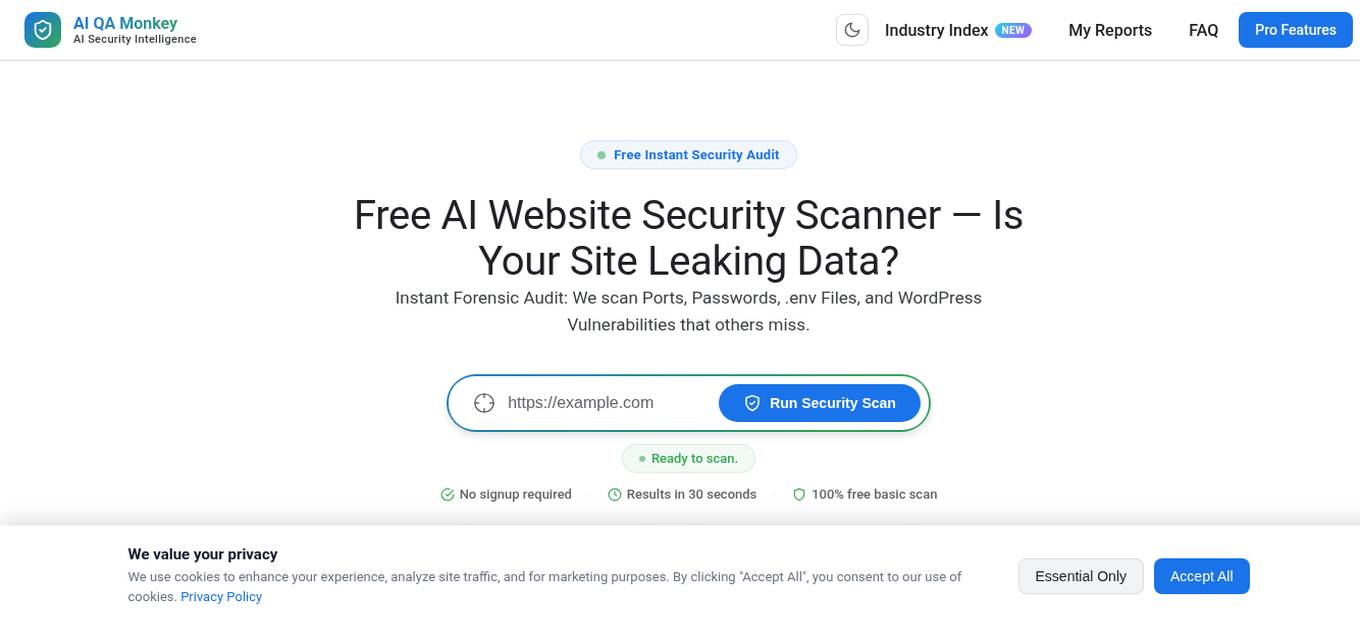
AI QA Monkey
AI QA Monkey is a free website security scanner that offers instant security audits to check website security scores. The tool scans for vulnerabilities such as leaked sensitive data, open ports, passwords, .env files, and WordPress vulnerabilities. It provides a detailed security report with actionable insights and AI-powered fixes. Users can export reports in PDF, JSON, or CSV formats. AI QA Monkey is designed to help businesses improve their security posture and comply with GDPR regulations.
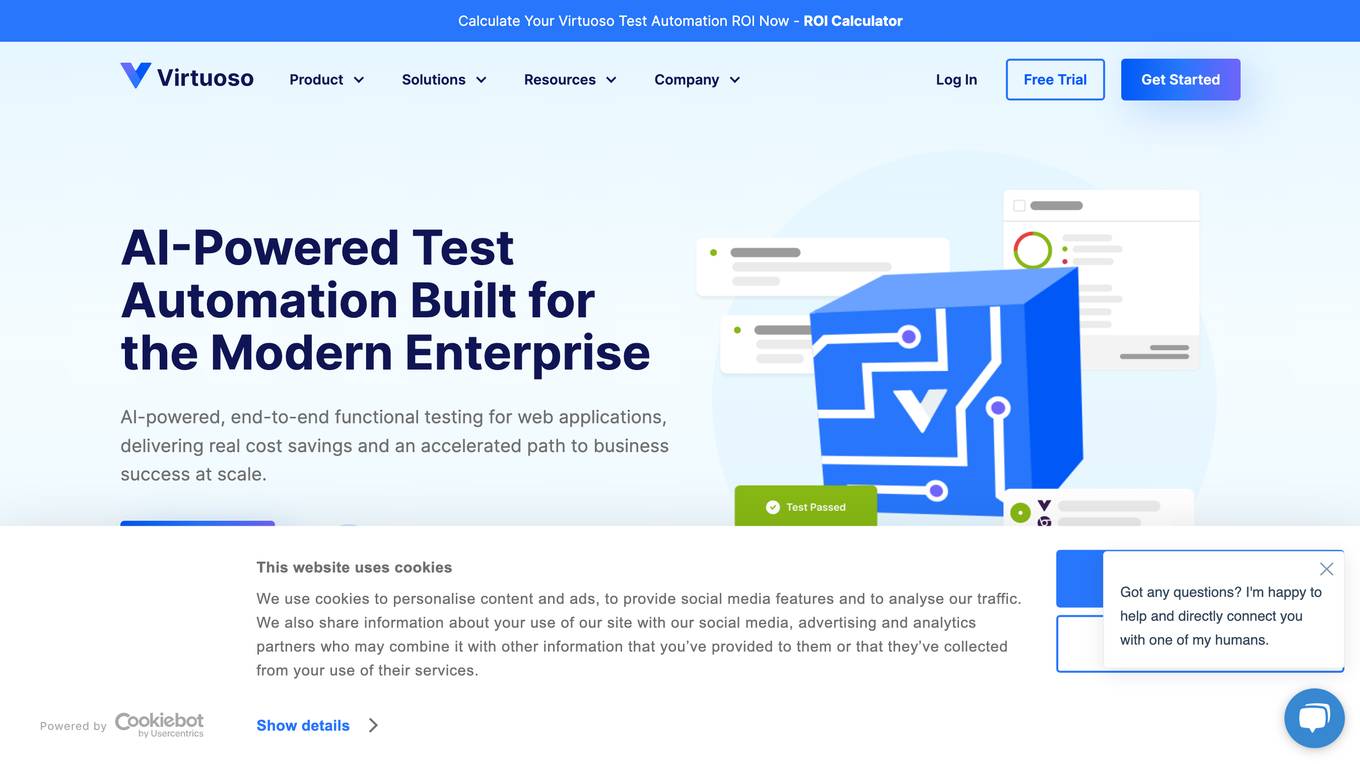
Virtuoso
Virtuoso is an AI-powered, end-to-end functional testing tool for web applications. It uses Natural Language Programming, Machine Learning, and Robotic Process Automation to automate the testing process, making it faster and more efficient. Virtuoso can be used by QA managers, practitioners, and senior executives to improve the quality of their software applications.
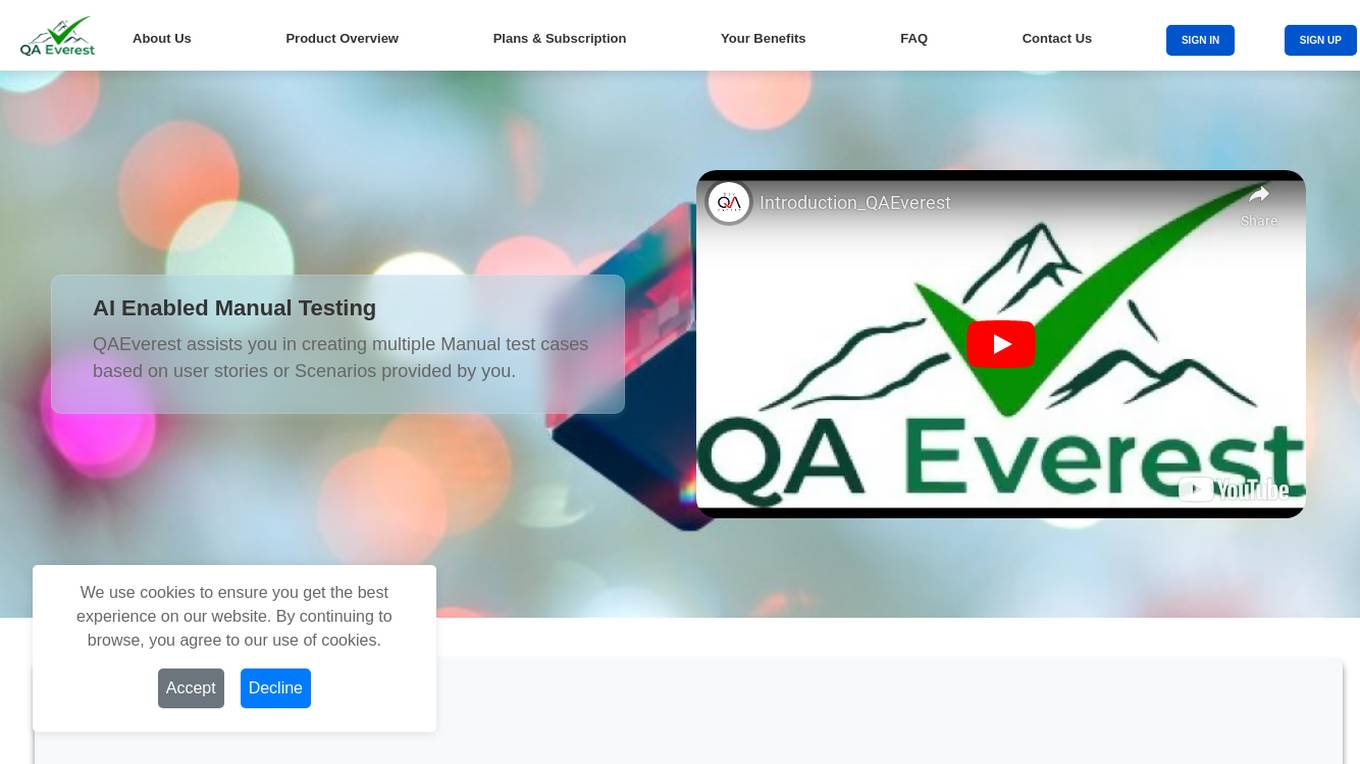
AI Generated Test Cases
AI Generated Test Cases is an innovative tool that leverages artificial intelligence to automatically generate test cases for software applications. By utilizing advanced algorithms and machine learning techniques, this tool can efficiently create a comprehensive set of test scenarios to ensure the quality and reliability of software products. With AI Generated Test Cases, software development teams can save time and effort in the testing phase, leading to faster release cycles and improved overall productivity.
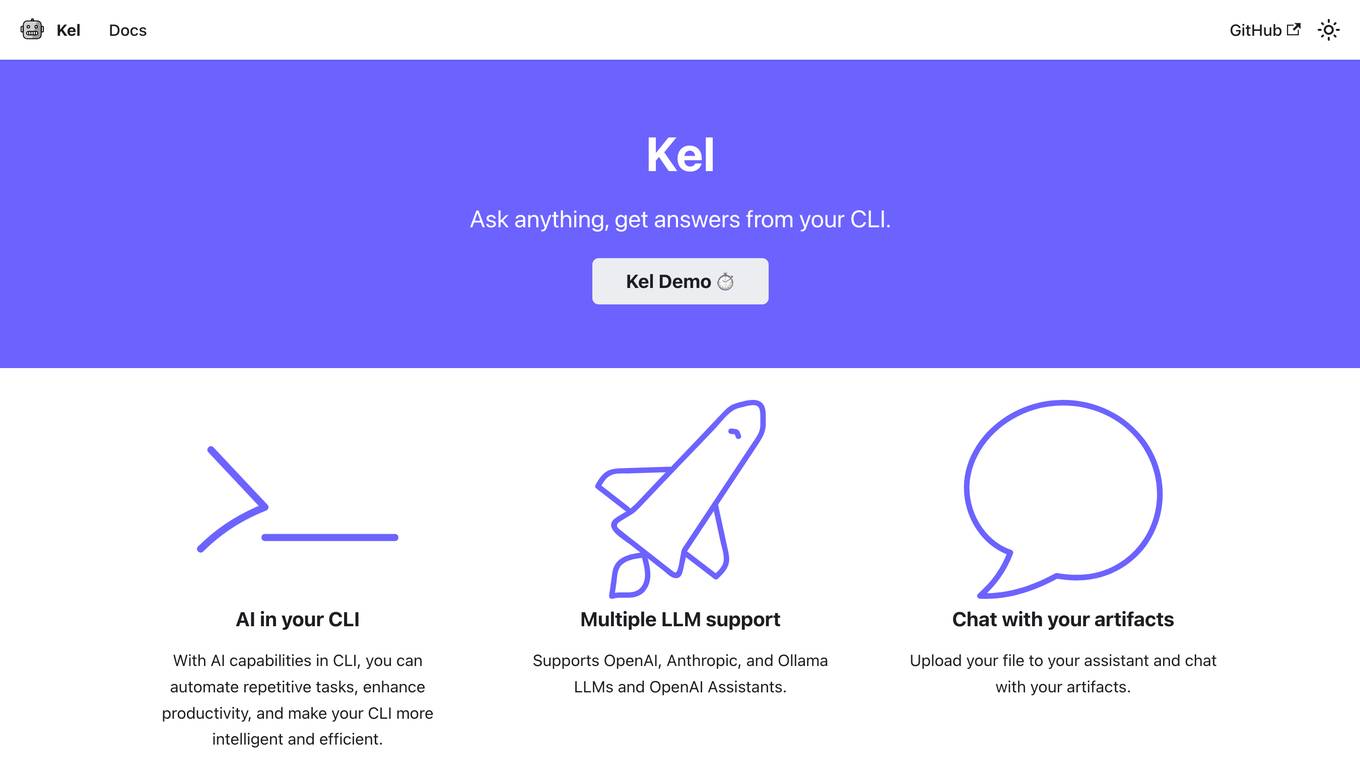
Kel
Kel is an AI Assistant designed to operate within the Command Line Interface (CLI). It offers users the ability to automate repetitive tasks, boost productivity, and enhance the intelligence and efficiency of their CLI experience. Kel supports multiple Language Model Models (LLMs) including OpenAI, Anthropic, and Ollama. Users can upload files to interact with their artifacts and bring their own API key for integration. The tool is free and open source, allowing for community contributions on GitHub. For support, users can reach out to the Kel team.
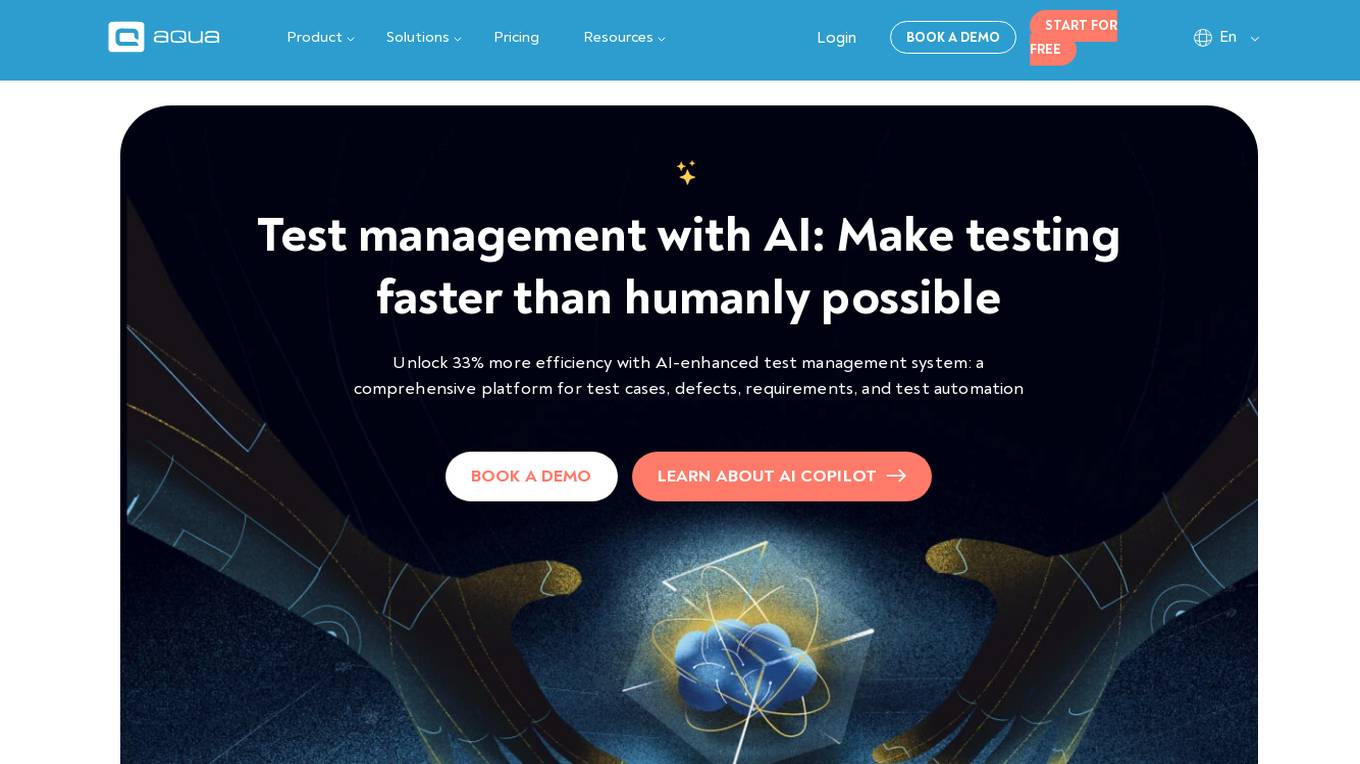
aqua
aqua is a comprehensive Quality Assurance (QA) management tool designed to streamline testing processes and enhance testing efficiency. It offers a wide range of features such as AI Copilot, bug reporting, test management, requirements management, user acceptance testing, and automation management. aqua caters to various industries including banking, insurance, manufacturing, government, tech companies, and medical sectors, helping organizations improve testing productivity, software quality, and defect detection ratios. The tool integrates with popular platforms like Jira, Jenkins, JMeter, and offers both Cloud and On-Premise deployment options. With AI-enhanced capabilities, aqua aims to make testing faster, more efficient, and error-free.
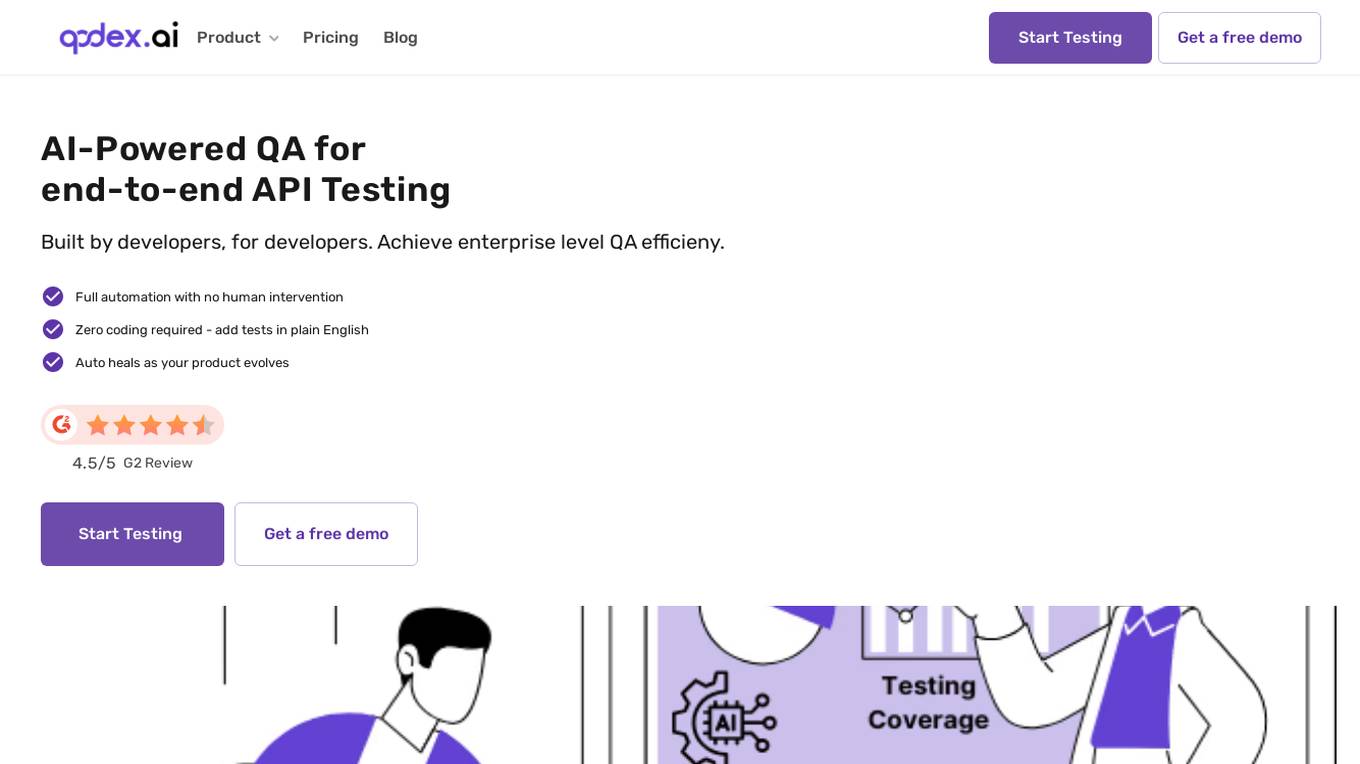
Qodex
Qodex is an AI-powered QA tool designed for end-to-end API testing, built by developers for developers. It offers enterprise-level QA efficiency with full automation and zero coding required. The tool auto-generates tests in plain English and adapts as the product evolves. Qodex also provides interactive API documentation and seamless integration, making it a cost-effective solution for enhancing productivity and efficiency in software testing.
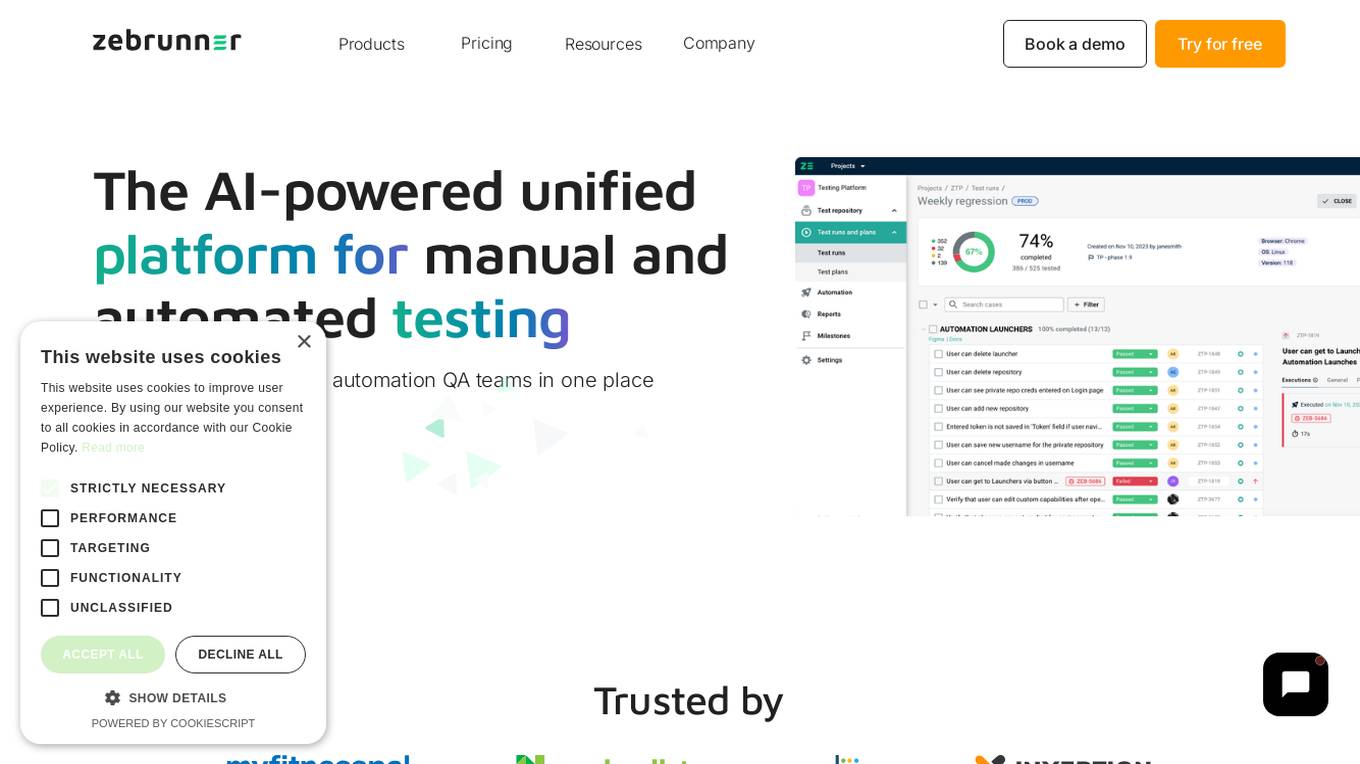
Zebrunner
Zebrunner is an AI-powered unified platform for manual and automated testing, designed to synchronize manual and automation QA teams in one place. It offers features such as test management, automation reporting, and test case management, with capabilities for generating new test cases, autocomplete existing ones, and categorize failures using AI. Zebrunner provides a clean and intuitive UI, unmatched performance, powerful reporting, rich integrations, and 24/7 support for efficient testing processes. It also offers customizable dashboards, sharable reports, and seamless integrations with Jira and other SDLC tools for streamlined workflows.
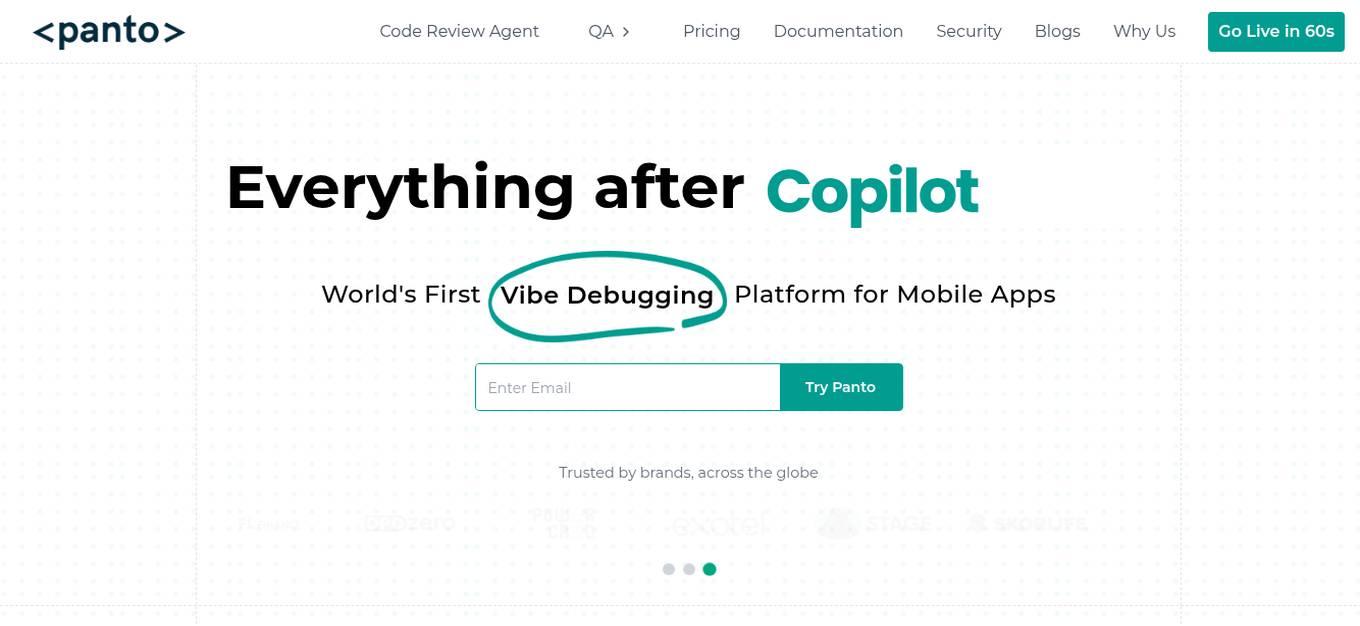
Panto AI
Panto AI is an AI automation testing platform that offers a comprehensive solution for mobile app testing, combining dynamic code reviews, code security checks, and QA automation. It allows users to create, execute, and run mobile test cases in natural language, ensuring reliable and efficient testing processes. With features like self-healing automation, real device testing, and deep failure visibility, Panto AI aims to streamline the QA process and enhance app quality. The platform is designed to be platform-agnostic and supports various integrations, making it suitable for diverse mobile app environments.
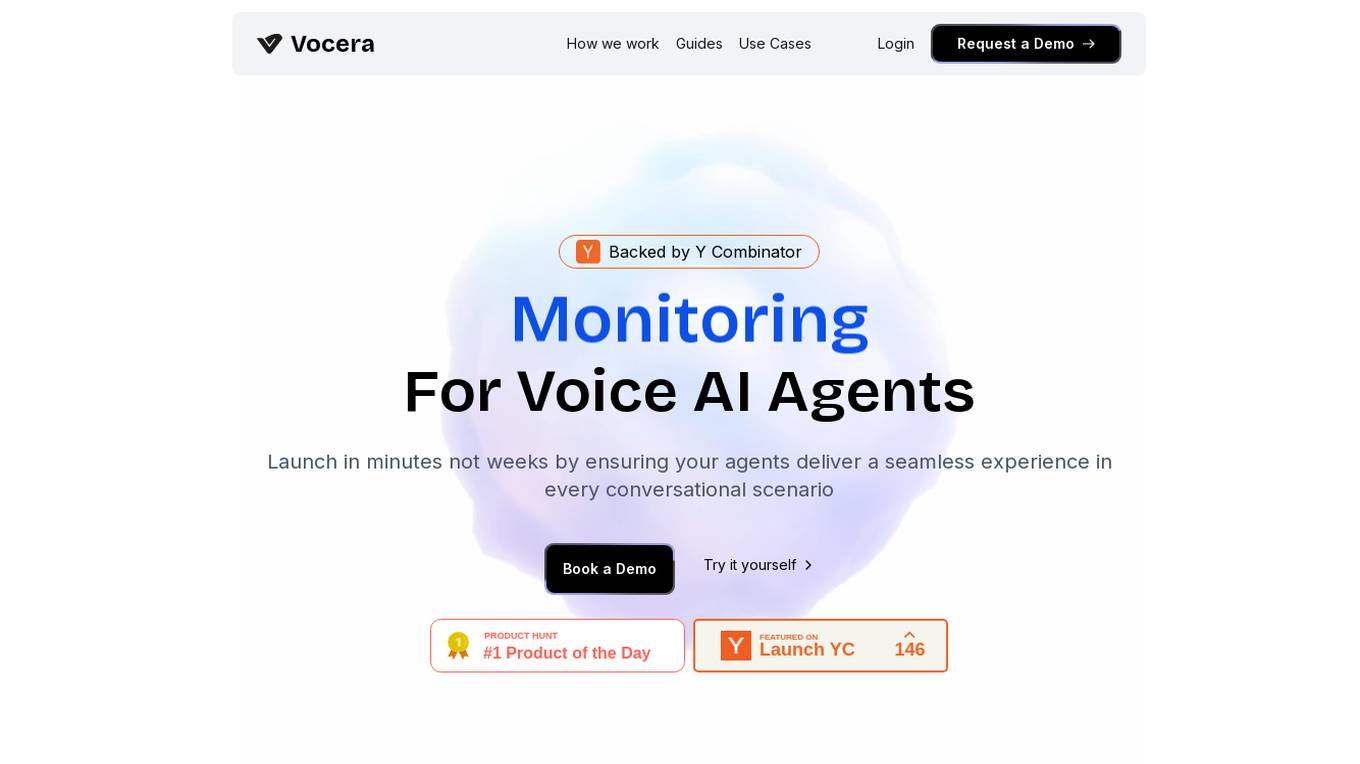
Vocera
Vocera is an AI voice agent testing tool that allows users to test and monitor voice AI agents efficiently. It enables users to launch voice agents in minutes, ensuring a seamless conversational experience. With features like testing against AI-generated datasets, simulating scenarios, and monitoring AI performance, Vocera helps in evaluating and improving voice agent interactions. The tool provides real-time insights, detailed logs, and trend analysis for optimal performance, along with instant notifications for errors and failures. Vocera is designed to work for everyone, offering an intuitive dashboard and data-driven decision-making for continuous improvement.
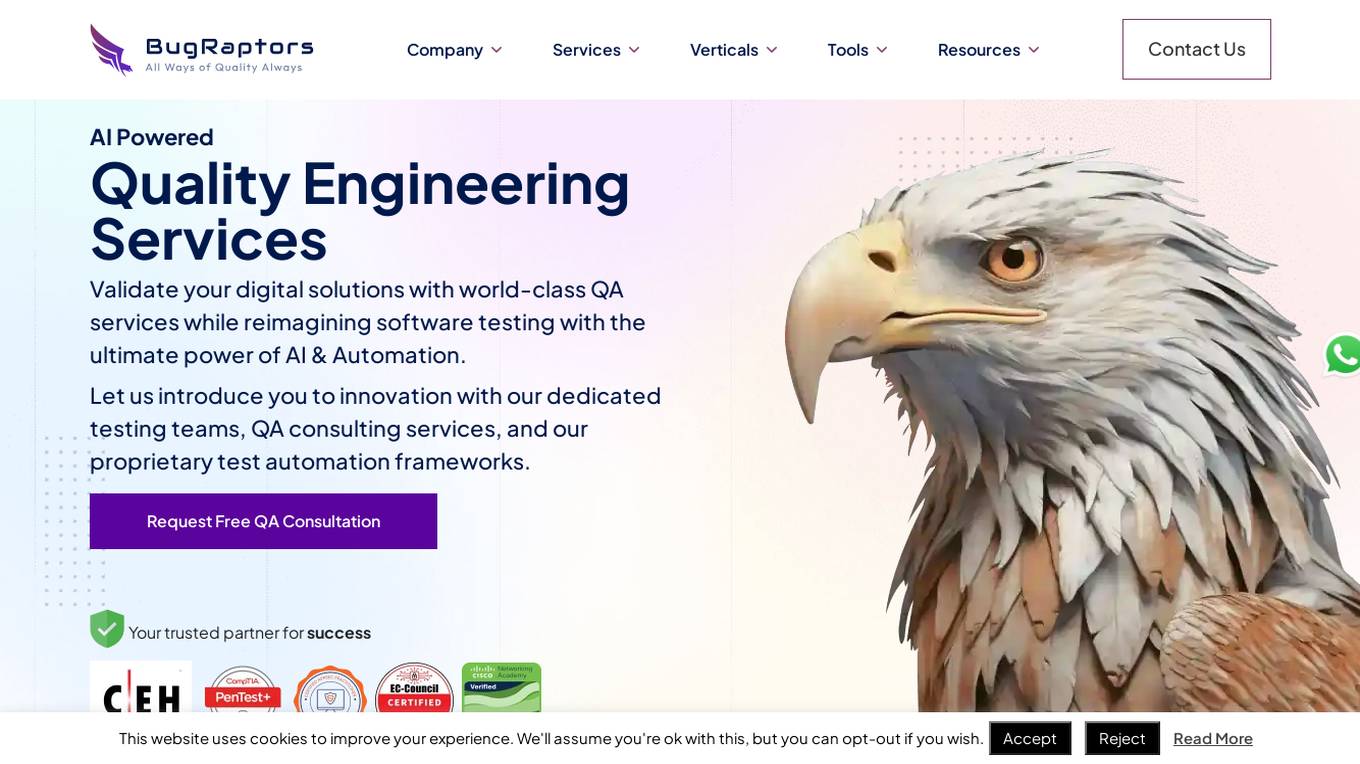
BugRaptors
BugRaptors is an AI-powered quality engineering services company that offers a wide range of software testing services. They provide manual testing, compatibility testing, functional testing, UAT services, mobile app testing, web testing, game testing, regression testing, usability testing, crowd-source testing, automation testing, and more. BugRaptors leverages AI and automation to deliver world-class QA services, ensuring seamless customer experience and aligning with DevOps automation goals. They have developed proprietary tools like MoboRaptors, BugBot, RaptorVista, RaptorGen, RaptorHub, RaptorAssist, RaptorSelect, and RaptorVision to enhance their services and provide quality engineering solutions.
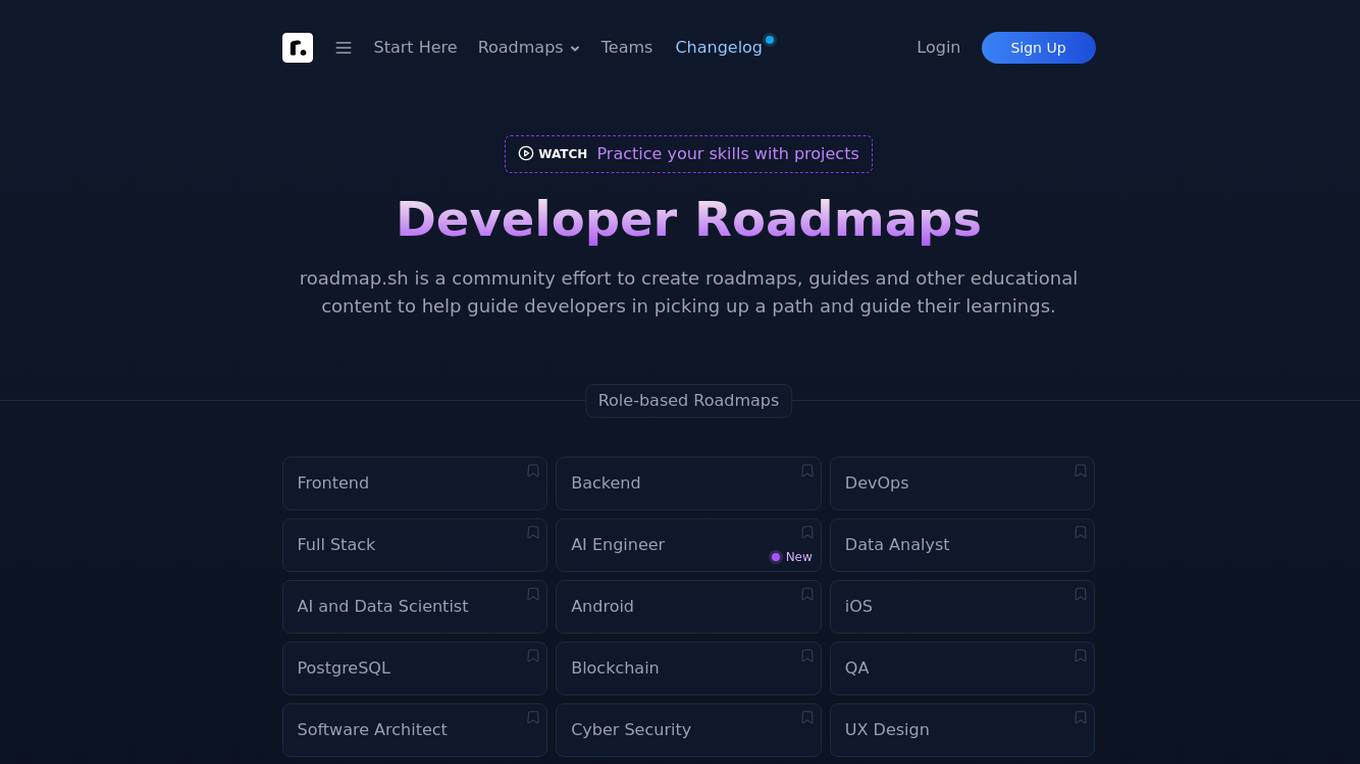
Developer Roadmaps
Developer Roadmaps (roadmap.sh) is a community-driven platform offering official roadmaps, guides, projects, best practices, questions, and videos to assist developers in skill development and career growth. It provides role-based and skill-based roadmaps covering various technologies and domains. The platform is actively maintained and continuously updated to enhance the learning experience for developers worldwide.
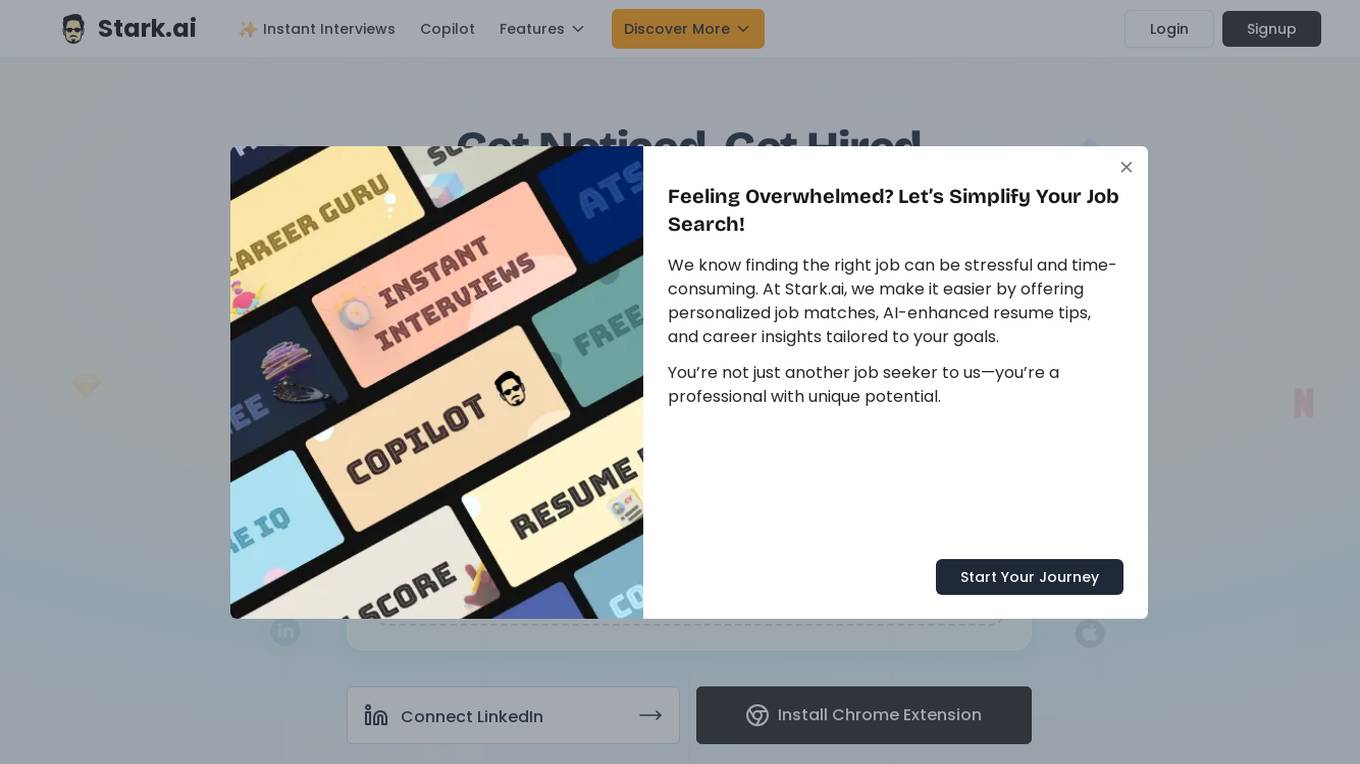
Stark.ai
Stark.ai is an AI-powered job search tool that revolutionizes the way job seekers navigate their professional journey. It offers a range of features such as Resume Builder, Career Guru AI insights, Job Match Score, ATS Friendliness Check, and Skill Builder to help users enhance their skills, optimize their resumes, and streamline their job search process. Stark.ai empowers users to get noticed, get hired faster, and transform their careers with AI-driven precision.
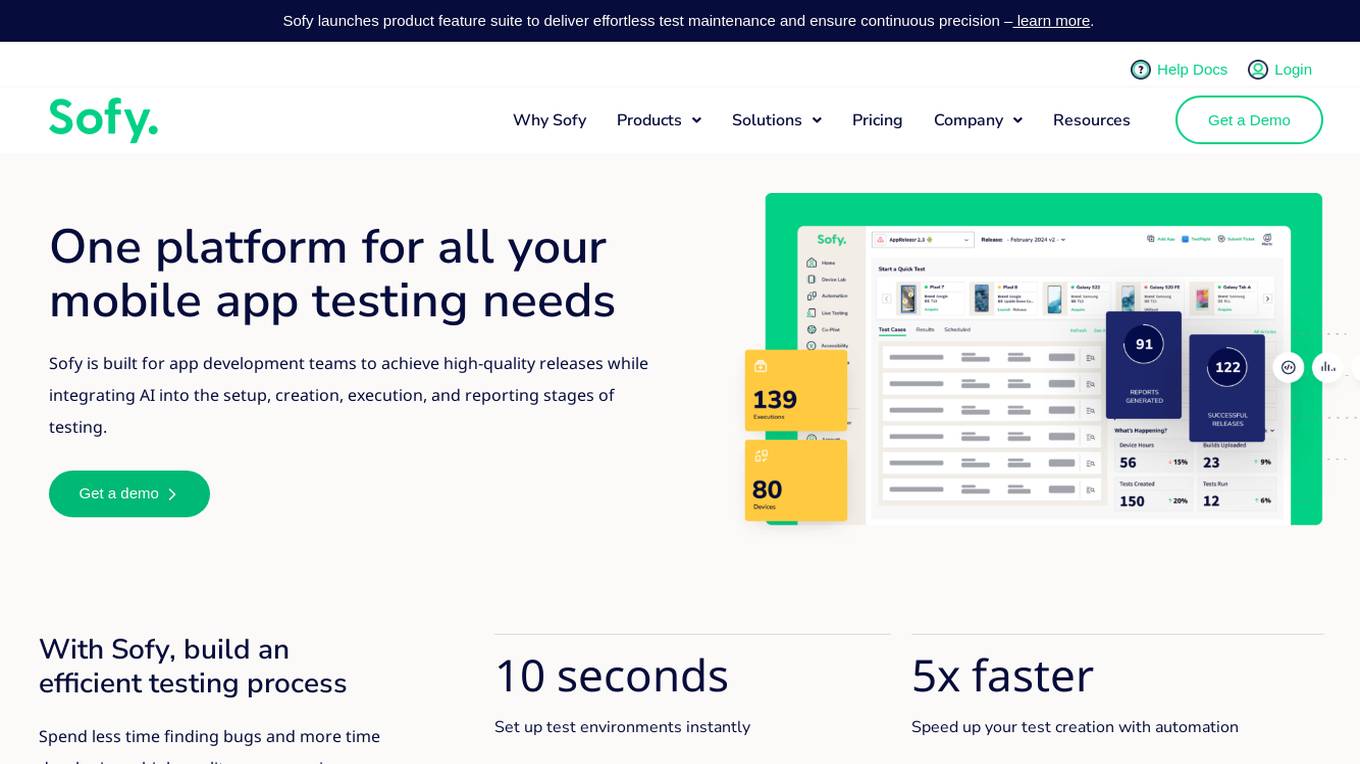
Sofy
Sofy is a revolutionary no-code testing platform for mobile applications that integrates AI to streamline the testing process. It offers features such as manual and ad-hoc testing, no-code automation, AI-powered test case generation, and real device testing. Sofy helps app development teams achieve high-quality releases by simplifying test maintenance and ensuring continuous precision. With a focus on efficiency and user experience, Sofy is trusted by top industries for its all-in-one testing solution.
1 - Open Source Tools
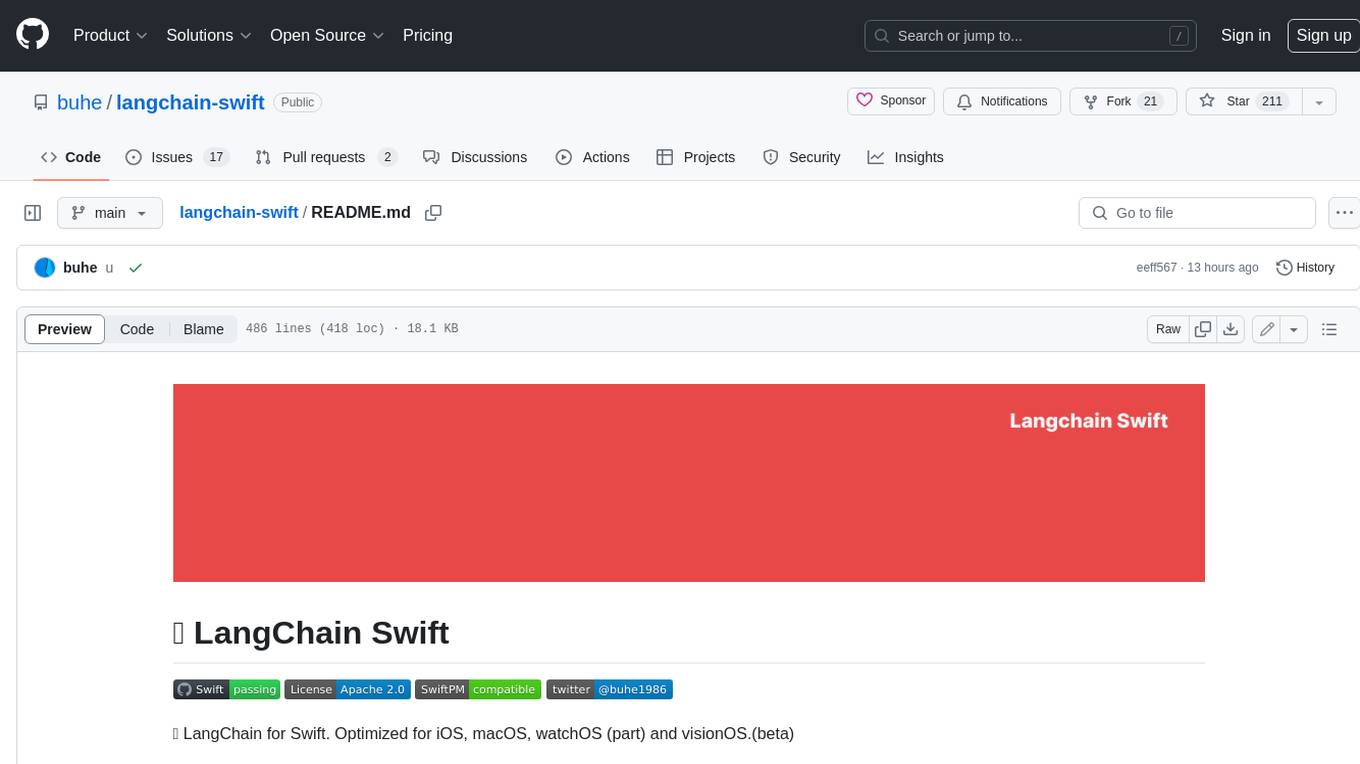
langchain-swift
LangChain for Swift. Optimized for iOS, macOS, watchOS (part) and visionOS.(beta) This is a pure client library, no server required
20 - OpenAI Gpts
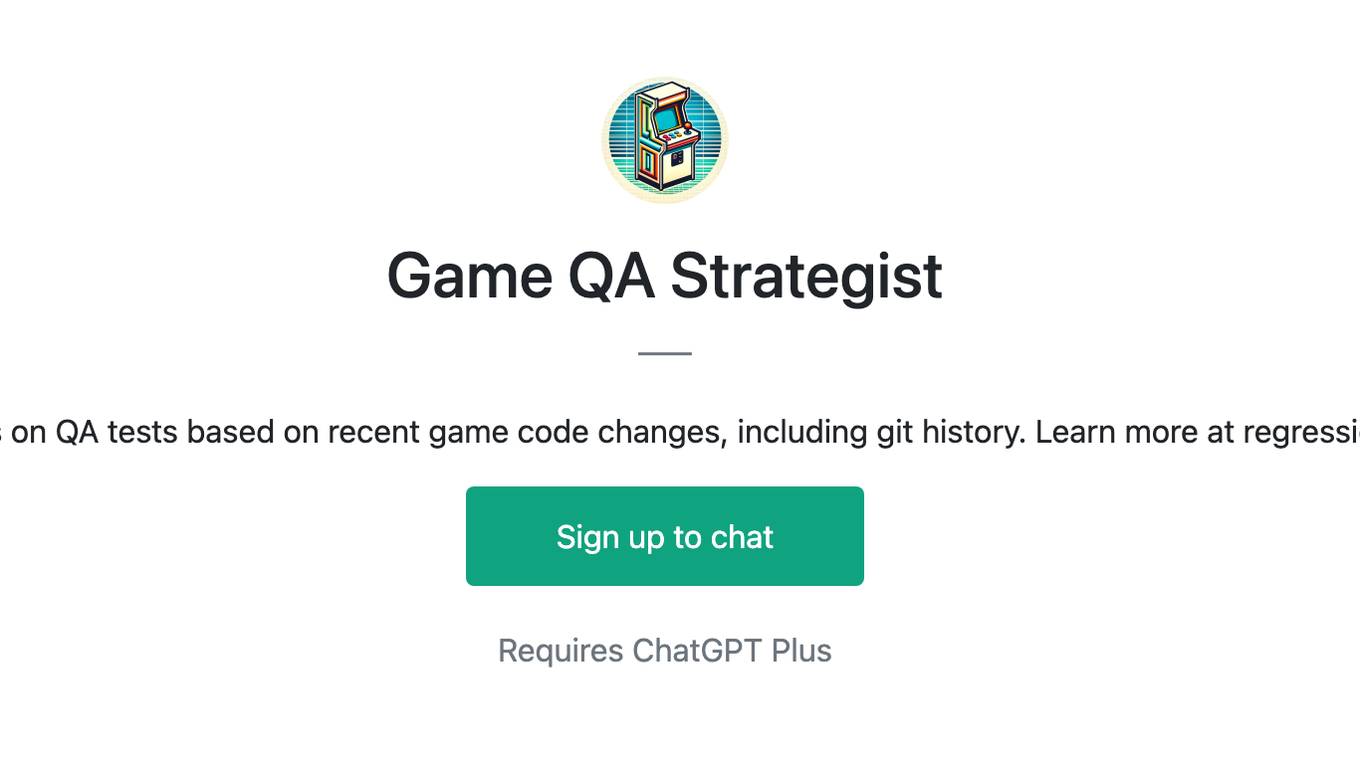
Game QA Strategist
Advises on QA tests based on recent game code changes, including git history. Learn more at regression.gg
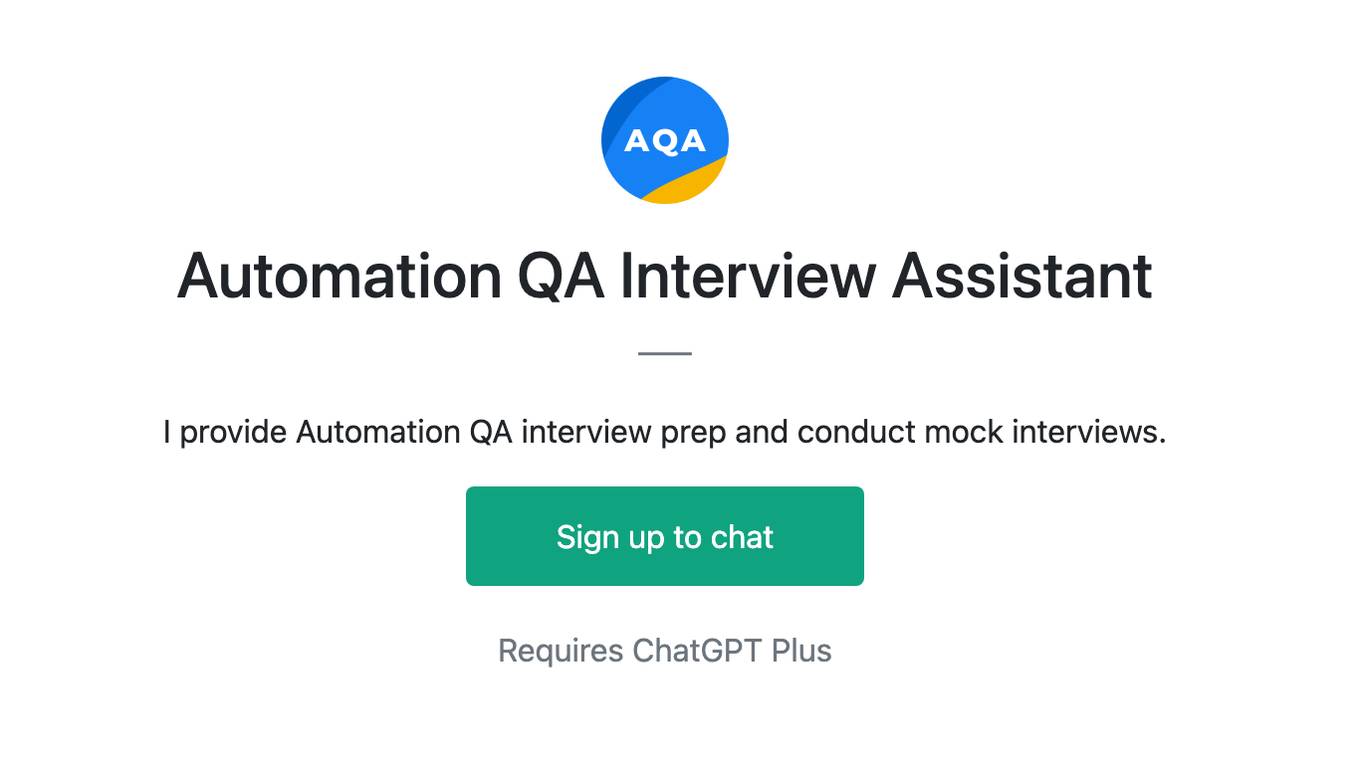
Automation QA Interview Assistant
I provide Automation QA interview prep and conduct mock interviews.
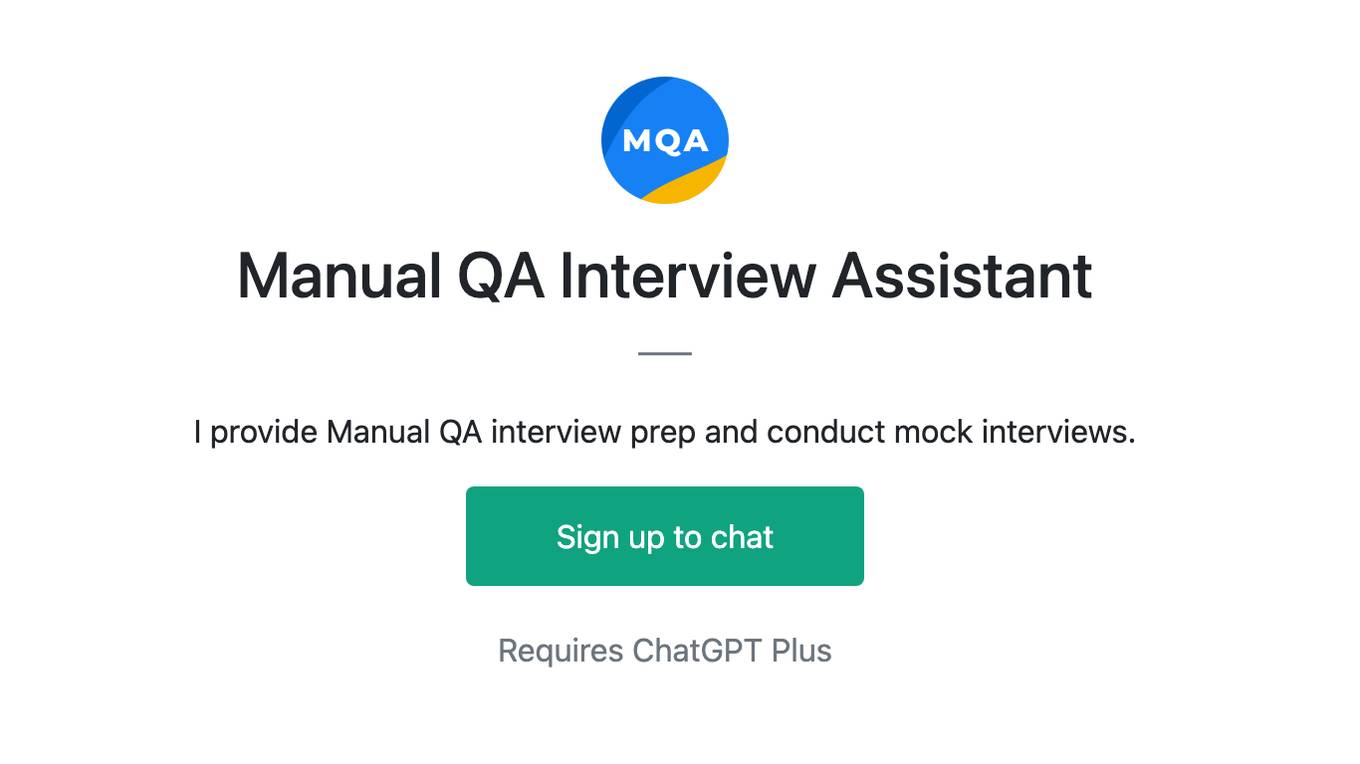
Manual QA Interview Assistant
I provide Manual QA interview prep and conduct mock interviews.
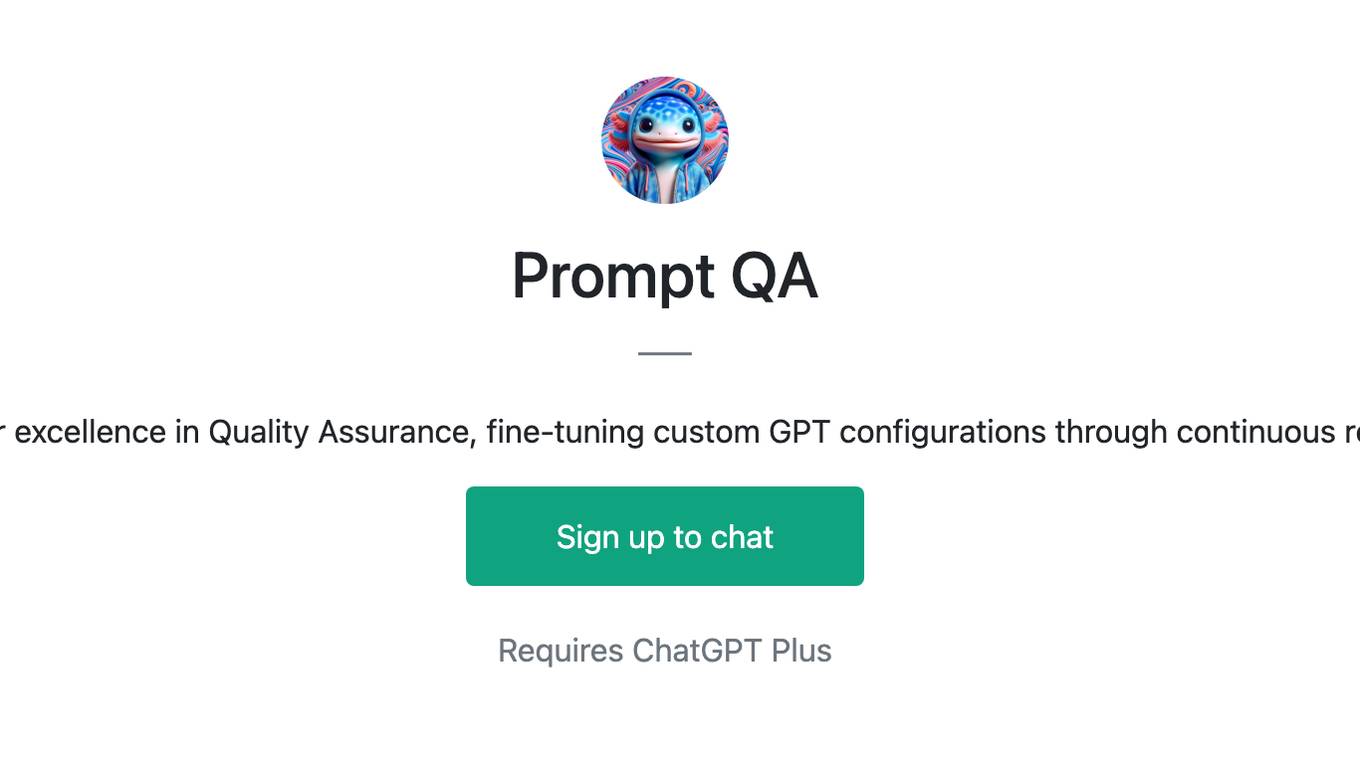
Prompt QA
Designed for excellence in Quality Assurance, fine-tuning custom GPT configurations through continuous refinement.
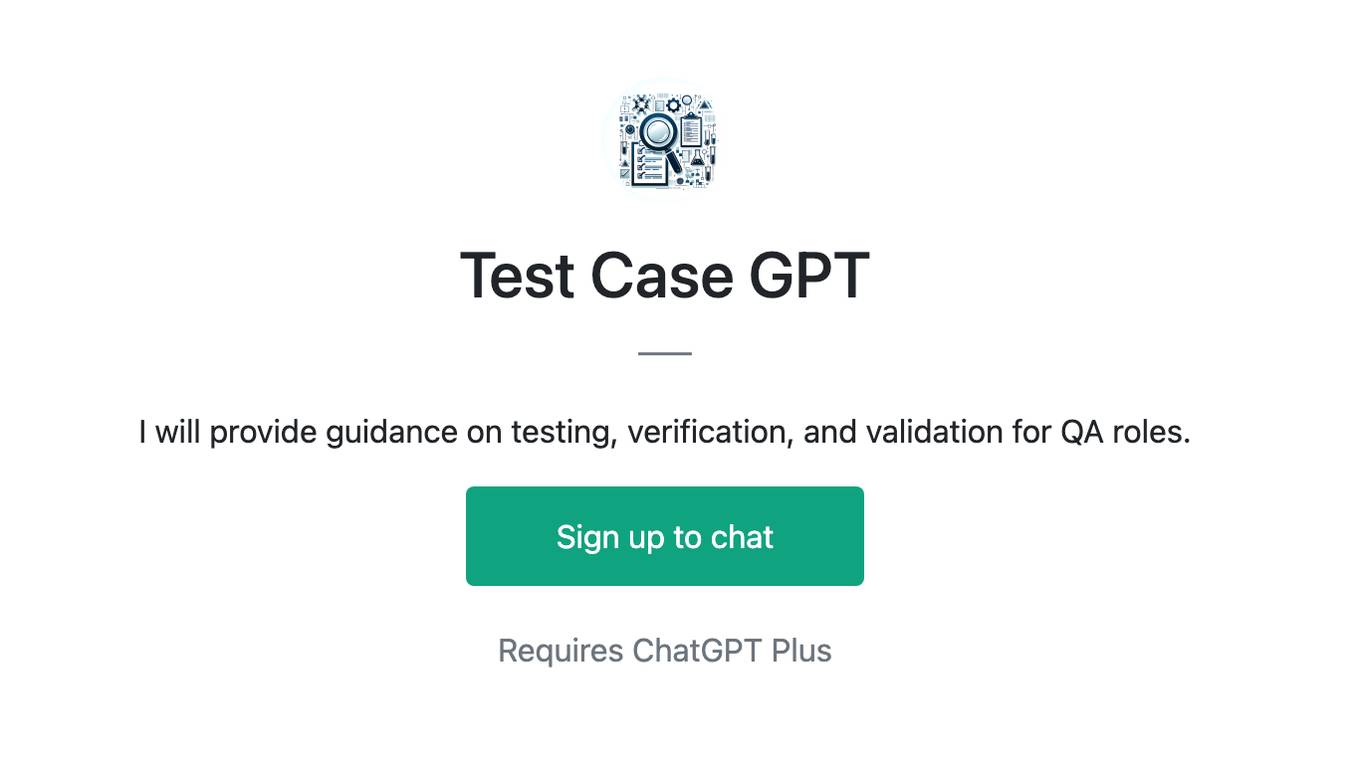
Test Case GPT
I will provide guidance on testing, verification, and validation for QA roles.
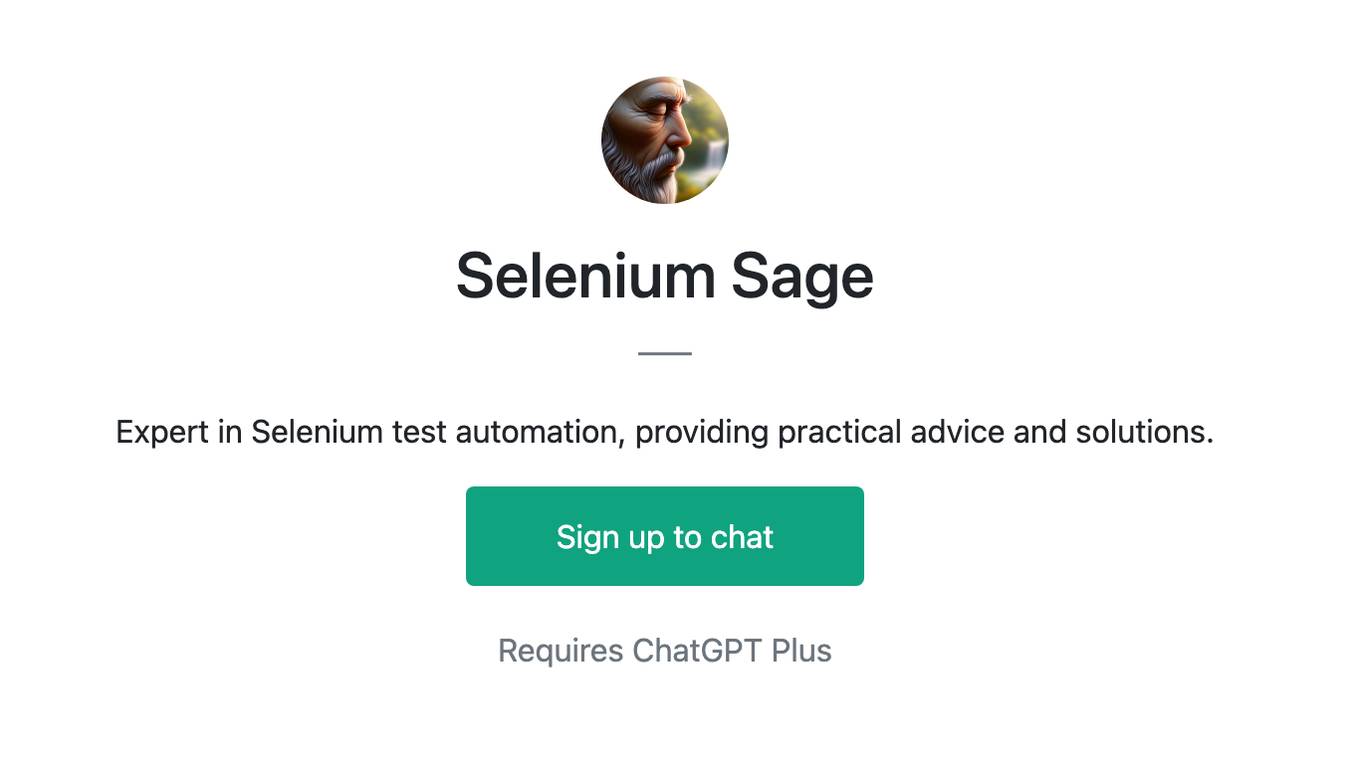
Selenium Sage
Expert in Selenium test automation, providing practical advice and solutions.
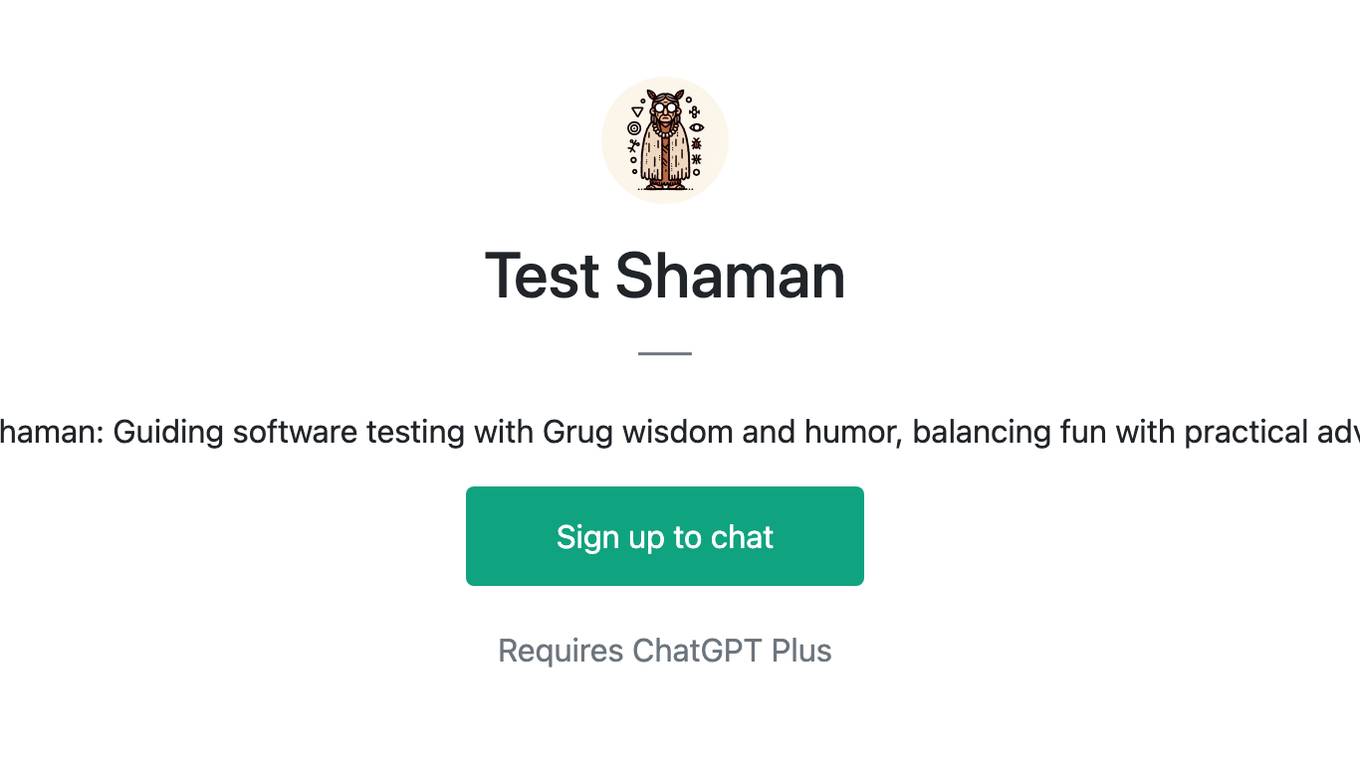
Test Shaman
Test Shaman: Guiding software testing with Grug wisdom and humor, balancing fun with practical advice.
